
Table of Contents
- Foreword
- Executive Summary
- Introduction
-
Understanding Saudi Arabia
-
Historical Context
- From Emergence to a Modern Nation: A Journey Through Time
- The Foundations: The Emergence of the Al Saud Dynasty
- Uniting the Kingdom: The Vision of Abdulaziz Al Saud
- The Oil Era: Economic Transformation (Mid-20th Century)
- Vision 2030: Paving the Way for a Diversified Economy (21st Century)
- Dynamic and Evolving Kingdom
-
Economic Overview
- Saudi Arabia’s Economic Landscape: Transitioning Beyond Oil
- GDP and Economic Growth: A Dynamic Picture
- Industry Contributions to GDP: Oil vs. Non-Oil Sectors
- Diversification Efforts: Towards a Balanced Economy
- Key Industries and Sectors: Pillars of the New Economy
- Investment in Infrastructure: Building the Future
- Global Economic Conditions: Navigating Complexities
- Economic Vision 2030: A Roadmap for Transformation
-
Sociocultural Landscape
- Navigating Saudi Arabia’s Sociocultural Dynamics in Business
- Social Norms and Practices: A Blend of Tradition and Modernity
- Language and Communication: Understanding Nuances
- Business Etiquette: Building Relationships
- Religion: Islam’s Influence
- Impact of Religion on Consumer and Business Behavior
- Demographics: A Youthful Consumer Base
- Cultural Insights Based on Hofstede’s Dimensions
- Modernization and Vision 2030: A Society in Transition
- Historical Relationship with Europe
-
Historical Context
- Business Climate and Opportunities
- Legal and Regulatory Frameworks
-
Establishing Presence in Saudi Arabia
-
Entry Strategies
- Export to Saudi
- Joint Ventures (JVs) and Partnerships
- Mergers and Acquisitions (M&A)
- Greenfield Investments
- Understanding the Business Environment
- Understanding Entry Strategies
- Case Study: Hoffmann-La Roche (Switzerland): Export and joint venture
- Case Study: IKEA (Sweden): Greenfield Investment
- Case Study: AccorHotels: Mergers and acquisitions (M&A)
- Operational Considerations
- Building Relationships
-
Entry Strategies
- Conclusion
- Authors
Foreword
In an era where understanding and navigating global markets is paramount to success, “The CEO Guide to KSA” stands out as an indispensable resource for business leaders looking to harness the opportunities within the Kingdom of Saudi Arabia. As we stand on the precipice of unprecedented change, driven by Vision 2030, the Kingdom’s ambitious blueprint for economic diversification and social transformation, the insights within this guide illuminate the path forward.
Eurogroup Consulting, with over four decades of experience in steering organizations through their strategic and transformational journeys, recognizes the significance of this moment for CEOs and business leaders. The Kingdom of Saudi Arabia represents a dynamic market, rich with potential and poised for a future that promises innovation, growth, and a redefined role on the world stage. This guide, meticulously crafted, offers a comprehensive exploration of the multifaceted business landscape of Saudi Arabia, from its historical roots to the modern-day economic, legal, and sociocultural dynamics shaping its future.
Our commitment at Eurogroup Consulting to facilitating positive transformation aligns with the spirit of Vision 2030. We believe in the power of knowledge to drive informed decision-making and strategic action. “The CEO Guide to KSA” embodies this belief, providing a deep dive into the Kingdom’s evolving business climate, highlighting lucrative opportunities across various sectors, and discussing the legal and regulatory frameworks pivotal for success.
As the Kingdom forges ahead with its transformative agenda, understanding its unique business environment becomes crucial. This guide serves not just as a resource but as a roadmap for success, fostering meaningful connections and opportunities in one of the world’s most promising economies. For Eurogroup Consulting, it represents another step towards our mission of aiding businesses to navigate the complexities of change, ensuring they are well-equipped to thrive in the global marketplace.
I commend the authors for their thorough research and insightful analysis, which will undoubtedly benefit business leaders looking to make their mark in Saudi Arabia. “The CEO Guide to KSA” is more than a publication; it is a companion for those ready to embrace the opportunities that the future holds.
Executive Summary
For European entrepreneurs eyeing opportunities in Saudi Arabia, several additional aspects could be particularly interesting and relevant:

Emerging Market Opportunities: With Saudi Arabia’s Vision 2030, new sectors are emerging beyond the traditional oil industry. Areas such as renewable energy, technology, entertainment, tourism, and healthcare, are ripe with opportunities. European entrepreneurs with expertise in these fields may find untapped potential in the Saudi market.

Start-Up and Innovation Ecosystem: Saudi Arabia is actively fostering a start-up and innovation ecosystem. Initiatives like the SAGIA offer support and incentives to start-ups. European entrepreneurs in tech and innovation can leverage these initiatives for market entry and growth.

PIF: The PIF, Saudi Arabia’s sovereign wealth fund, plays a crucial role in the country’s economic diversification efforts. It’s actively investing in various sectors and represents a potential source of funding or partnership for European businesses.

Saudi Arabia’s G20 Presidency in 2020: Saudi Arabia’s G20 presidency highlighted its growing role in global economic affairs. This presents European entrepreneurs with a landscape that is more integrated into the global economy, offering broader networking and partnership opportunities.

Cultural Exchange Programs: There are increasing cultural exchanges between Saudi Arabia and Europe, including art, education, and business conferences. These platforms can provide networking opportunities and deeper market insights for European entrepreneurs.

Ease of Doing Business Reforms: Saudi Arabia has implemented significant reforms to improve its business environment. These include streamlining business registration processes and protecting minority investors, making it easier for foreign entrepreneurs to start and operate a business.

Strategic Geographic Location: Saudi Arabia’s location as a gateway to the Middle East and Africa can serve as a strategic advantage for European entrepreneurs looking to expand not only in the Kingdom but also in the broader region.

Saudi-EU Relations: The ongoing dialogue and trade agreements between Saudi Arabia and the European Union can provide a stable framework and beneficial trade terms for European businesses operating in Saudi Arabia.
Understanding these aspects can provide European entrepreneurs with a more comprehensive view of the opportunities and the business landscape in Saudi Arabia, helping them to make informed decisions about market entry and expansion strategies.
Introduction
In ‘The CEO Guide to KSA,’ we delve into the multifaceted business landscape of Saudi Arabia. This guide is an invaluable resource for CEOs and business leaders who aspire to navigate and capitalize on the abundant opportunities within the Kingdom. It encompasses a thorough exploration of Saudi Arabia’s historical evolution, economic transformation, and the sociocultural dynamics that shape its unique business environment. Moreover, it provides a detailed analysis of the evolving business climate, highlighting lucrative opportunities across various sectors, and discusses the Kingdom’s legal and regulatory frameworks that are pivotal for business success. This guide is an essential tool for understanding and succeeding in one of the world’s most dynamic and rapidly evolving markets.
Understanding Saudi Arabia
Historical Context
From Emergence to a Modern Nation: A Journey Through Time
Saudi Arabia, a country synonymous with its vast oil reserves and pivotal role in the global energy market, has a rich history that has shaped its current economic and geopolitical stature. This historical journey, from the early foundations of the nation to its emergence as a modern economic powerhouse, offers vital insights for business leaders looking to engage with the Kingdom.

The Foundations: The Emergence of the Al Saud Dynasty
The roots of modern Saudi Arabia trace back to the 18th century with the establishment of the Emirate of Diriyah, the first Saudi state. This era witnessed the alliance between Islamic reformer Muhammad ibn Abd al Wahhab and local ruler Muhammad bin Saud in 1744, marking the genesis of the Al Saud dynasty’s influence. Notable events like the capture of Mecca in 1803 underscored the expanding influence of this early Saudi state, despite setbacks such as the fall of the First Saudi State with the Ottoman-Egyptian invasion in 1818.
Uniting the Kingdom: The Vision of Abdulaziz Al Saud
The pivotal transformation of Saudi Arabia began in the early 20th century under the leadership of Abdulaziz Al Saud (Ibn Saud). His successful campaign, culminating in the unification of the Kingdom in 1932, integrated regions such as Hejaz and Najd, laying the groundwork for the modern Saudi state. This period marked a significant shift from a landscape dominated by regional divisions to a unified nation-state.
The Oil Era: Economic Transformation
Saudi Arabia’s discovery of oil in Dhahran in 1938 was a watershed moment, forever altering its economic trajectory. The establishment of ARAMCO in 1933 and the commencement of full-scale oil production in 1951 catalyzed unprecedented economic growth. The oil embargo of 1973 further accentuated Saudi Arabia’s global influence, showcasing its leverage in the oil market. Additionally, the geopolitical dynamics of regional conflicts, such as the Iran-Iraq War and the Gulf War, had significant economic implications, reinforcing Saudi Arabia’s strategic importance.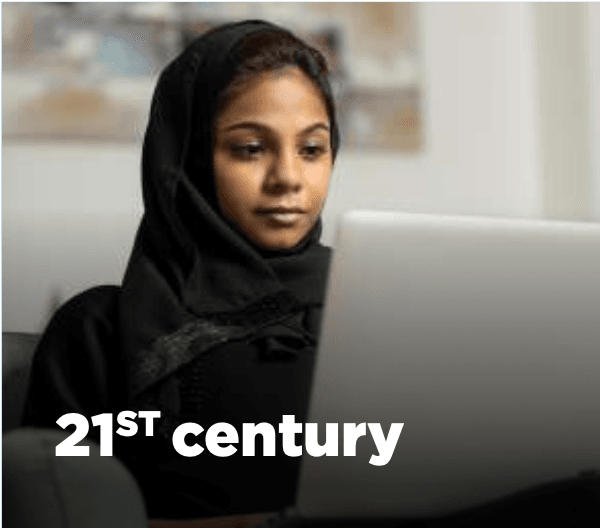
Vision 2030: Paving the Way for a Diversified Economy
In recent years, under the leadership of King Salman and Crown Prince Mohammed bin Salman, Saudi Arabia has embarked on a transformative journey. The announcement of Vision 2030 in 2016 marked a strategic pivot towards diversifying the economy beyond oil. This ambitious plan encompasses a wide range of sectors including health, education, infrastructure, tourism, and the development of SMEs, signaling a commitment to a sustainable and diversified economic future. The modernization and social reforms initiated in 2017 further aim to attract foreign investment, stimulate the private sector, and create a dynamic business environment.
A Dynamic and Evolving Kingdom
Saudi Arabia’s historical evolution from a region dependent on traditional income sources to a global energy leader, and now towards a diversified economy, underscores its dynamic nature. For CEOs and business leaders, understanding this rich historical context is critical for navigating the complexities and opportunities in a changing kingdom that is actively shaping its future.Economic Overview
Saudi Arabia’s Economic Landscape: Transitioning Beyond Oil
Saudi Arabia’s economy, historically reliant on oil, is undergoing a significant transformation. The kingdom’s gross domestic product (GDP) and economic growth patterns reflect this shift, as it balances the immediate benefits of its oil wealth with the long-term vision of a more diversified economy.
GDP and Economic Growth: A Dynamic Picture
Following the pandemic, the Saudi economy rebounded in 2021 with a real GDP growth of 4.8%, as reported by the International Monetary Fund (IMF). This resurgence was accompanied by a projected budget surplus of 2.5% of GDP. The trend continued into 2022, with a growth projection of 4.8%, driven by the government’s initiatives to diversify income, empower the private sector, and implement structural changes under its Vision 2030 programs. However, contrasting forecasts for 2023 suggest a complex economic landscape ahead. While SP Global projects a GDP growth slowdown to 3.1%, the IMF estimates a 3.7% growth. On the other hand, the World Bank anticipates a contraction of 0.9%, indicating a more cautious outlook.
Industry Contributions to GDP: Oil vs. Non-Oil Sectors
The Saudi economy has long been dominated by the oil and gas sector, a significant contributor to GDP. However, recent diversification efforts have led to a notable shift. The non-oil sector is showing promising growth, with an expected increase of 5.9% in 2023. This progression underscores the rationale behind Saudi Arabia’s diversification drive, aiming to create a more resilient economy less susceptible to global oil market fluctuations.

Diversification Efforts: Towards a Balanced Economy
Acknowledging the volatile nature of oil markets, Saudi Arabia has been aggressively pursuing economic diversification through Vision 2030. This ambitious blueprint seeks to reduce oil dependency and stimulate growth in sectors like tourism, entertainment, and technology. The country is expected to record a budget deficit in 2023 as it ramps up spending to achieve these goals, reflecting a strategic pivot towards sustainable long-term growth.
Key Industries and Sectors: Pillars of the New Economy
Energy: Remains a dominant sector, with efforts to develop renewable energy sources complementing traditional oil production.
Industry and Manufacturing: The National Industrial Development and Logistics Programme (NIDLP) identifies 50 industrial opportunities worth $25.6 billion.
Mining: Emerging as a key sector with significant untapped mineral resources, worth as much as $1.3 trillion, to be developed with the help of a $32-billion planned investment.
Logistics: Capitalizing on its strategic geographical position, Saudi Arabia is set to become a global logistics hub. Connecting three continents, Asia, Europe, and Africa, its position between key global waterways makes it an epicenter of trade and a gateway to the world.
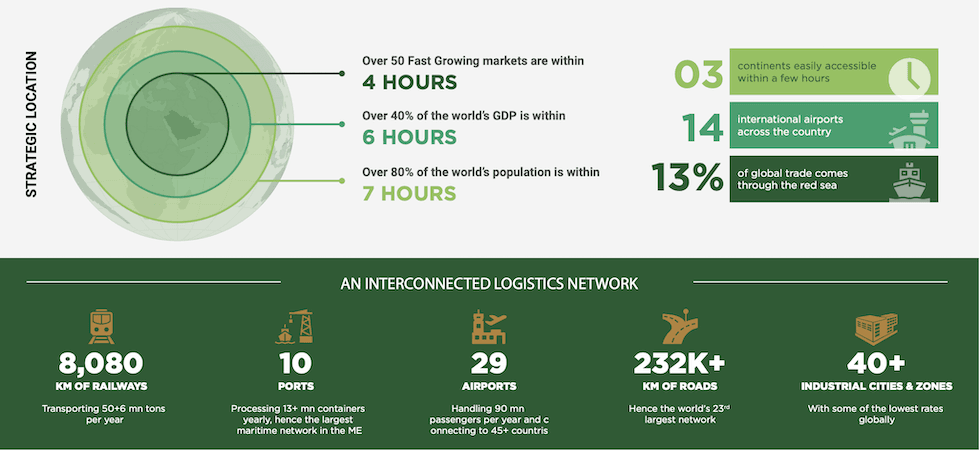
Construction: Experiencing a boom due to mega-projects and infrastructure developments, with nearly $1 trillion invested since 2016.
Agriculture and Food Processing: Efforts to bolster these sectors aim to enhance food security and reduce imports.
Real Estate: A significant sector driven by large-scale housing and urban development projects.
Technology and Innovation: A growing focus on this sector aims to modernize various industries and foster international collaborations.
Investment in Infrastructure: Building the Future
Major investments in infrastructure highlight Saudi Arabia’s commitment to diversification. Giga-projects like NEOM, encompassing The Line, Sindalah, Trojena, and Oxagon, illustrate the kingdom’s ambitious goals. Additionally, the AlUla project and initiatives in electric vehicle infrastructure signal a forward-thinking approach. These investments, including the development of 11 regions and various tourism-driven mega projects, are integral to Saudi Arabia’s economic strategy.

Global Economic Conditions: Navigating Complexities
Saudi Arabia’s economic engagements reflect its strategic ambitions. Recent trade agreements, including amending GCC rules and negotiating with 11 countries, underscore its efforts to expand non-oil exports. The landmark deal with China to sell oil in yuan instead of US dollars marks a significant shift in trade dynamics. However, the kingdom must also navigate through the challenges of economic sanctions and diplomatic complexities.
Economic Vision 2030: A Roadmap for Transformation
Vision 2030 represents Saudi Arabia’s comprehensive strategy to diversify its economy and reduce oil dependency. The kingdom’s substantial financial allocations for key projects and programs in the 2023 budget underscore its commitment to this vision. Through strategic investments and policy initiatives, Saudi Arabia is striving to create a more sustainable and diversified economic landscape, positioning itself as a global investment hub.
Sociocultural Landscape

Navigating Saudi Arabia’s Sociocultural Dynamics in Business
Understanding the sociocultural landscape of Saudi Arabia is essential for effective business engagement in the Kingdom. The country’s unique blend of traditional values, religious norms, and evolving modernization efforts significantly influences its business environment and consumer behavior.

Language and Communication: Understanding Nuances
Arabic, the official language, is central to Saudi communication, with English widely used in business circles. Communication in Saudi Arabia is generally indirect and high context, relying heavily on non-verbal cues and the broader context. Maintaining honor, respect, and ‘saving face’ are crucial aspects of communication and business dealings.

Business Etiquette: Building Relationships
In Saudi business culture, personal relationships and trust are paramount. It’s customary to engage in small talk and establish rapport before discussing business matters. Patience, respect, and adherence to local customs are key to successful business interactions.

Religion: Islam’s Influence
Islam profoundly influences Saudi society and business practices. As the birthplace of Islam and home to its two holiest cities, Mecca and Medina, Saudi Arabia adheres to a conservative interpretation of Sunni Islam. Prayer times, observed five times daily, dictate the rhythm of daily life and business operations. Islamic principles, such as the prohibition of usury, shape practices in sectors like banking and finance. Islamic holidays, following the lunar calendar, and the two-day weekend falling on Fridays and Saturdays, significantly impact business schedules.

Impact of Religion on Consumer and Business Behavior
Religious observances, such as Ramadan and Hajj, dictate consumer behavior and business operations. The adherence to Halal practices, especially in food and beverage, is a critical aspect of business compliance. These religious practices and principles offer insights into the sociological aspects of Saudi consumers and businesses.

Demographics: A Youthful Consumer Base
Saudi Arabia’s demographic profile, marked by a large youth population, is reshaping consumer trends and business strategies. This demographic shift is driving demand in sectors like technology, entertainment, and retail, aligning with the modernization goals of Vision 2030.
Cultural Insights Based on Hofstede’s Dimensions
Examining Saudi Arabia through Hofstede’s cultural dimensions offers valuable insights:
Power Distance:
High, indicating acceptance of hierarchical order and authority.
Uncertainty Avoidance:
Also high, reflecting a preference for clear rules and stability.
Individualism vs. Collectivism:
The society leans towards collectivism, emphasizing group harmony and family ties.
Masculinity vs. Femininity:
Masculine traits like competitiveness and achievement are prominent, though evolving social dynamics are influencing this dimension.
Long-Term Orientation:
This is becoming more significant with the forward-looking Vision 2030.
Indulgence vs. Restraint:
Traditionally restrained but changing as consumer lifestyles evolve.

“There are two main cultural considerations that companies need to be aware of in KSA:
Julien Pescheux, Former EVP of Saudi Airlines Catering Company (SACC)
- [It is beneficial to] build a team while including the younger generation, the recent graduates, the graduates that have been in the workplace for a good ten years and the more mature generation, the one that has seen and that have participated actively to this transition and that are still tied to the more mainstream way of doing business.
- Gender and diversity are a massive, massive advantage. Women in the workplace in the Kingdom have made a huge difference for the better and it needs to continue, and it needs to be well orchestrated.”
Modernization and Vision 2030: A Society in Transition
Vision 2030 embodies Saudi Arabia’s ambitious efforts to modernize and diversify its society. This includes progressive gender policies, expansion of entertainment options, and initiatives to enhance foreign investment and tourism.

Historical Relationship with Europe
The historical relationship between Saudi Arabia and Europe is multifaceted, encompassing diplomatic, economic, and cultural dimensions. This relationship has evolved significantly over the decades, reflecting changes in global politics, economic interests, and cultural exchanges.

The historical relationship between Saudi Arabia and Europe is characterized by a dynamic interplay of economic interests, political alliances, and cultural exchanges. While initially centered around oil, this relationship has evolved to encompass a broader range of interests, adapting to global economic shifts and regional dynamics. As Saudi Arabia continues on its path of economic diversification and modernization, its relationship with European countries is likely to further evolve, presenting new opportunities and challenges.
Business Climate and Opportunities
Market Overview
Saudi Arabia’s Market Dynamics: Resilience, Growth, and Diversification
The Saudi Arabian market has demonstrated remarkable resilience and a positive growth trajectory, particularly since 2021. This section provides an overview of the Saudi consumer spending, consumer behavior and trends, and the competitive landscape in the Kingdom.
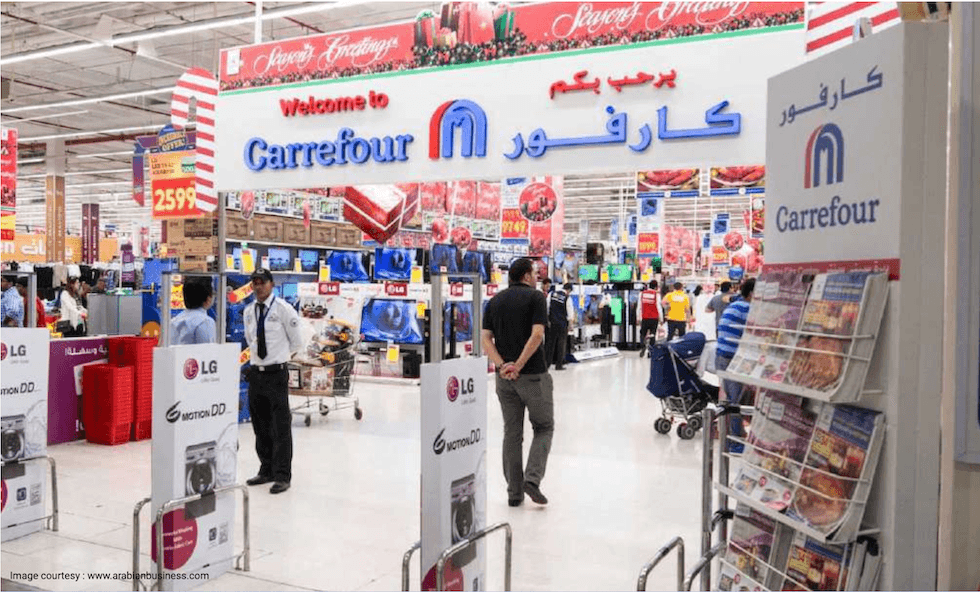
Consumer Spending
In 2021, consumer spending in Saudi Arabia increased to around SAR 261 billion in Q1, up from SAR 256 billion in the same period the previous year, as reported by the Saudi Central Bank. This economic rebound is further evidenced by a real GDP growth of 4.8%, a projected budget surplus of 2.5% of GDP, and substantial foreign reserves of approximately $450 billion. While the oil sector continues to be a significant contributor to the country’s GDP (28.2% in 2021), Vision 2030 aims to reduce reliance on oil, fostering investments across various sectors. This diversification is expected to drive real GDP growth and household consumption, indicating a favorable market outlook.
The Saudi market encompasses a broad range of sectors. The capital markets, particularly the Saudi Stock Exchange (Tadawul), have shown positive trends, further supporting the market’s robustness. The Tadawul All Share Index (TASI) ended 2023 with significant growth. Throughout the year, the index displayed a dynamic performance. It concluded the first quarter of 2023 with a rise of 1.1%, gaining 112 points to reach 10,590 points. The momentum continued with a substantial increase in the second quarter, adding 8.2%, or 869 points. By the end of the first nine months, TASI had risen by 5.5%, or 578 points, to 11,056 points.
“Four keys for companies’ success in Saudi:
Julien Pescheux, Former EVP of Saudi Airlines Catering Company (SACC)
- Access to financing is a big element of success today and it’s one of the angular stones in a country that is driving large capital projects and is crucial to buy yourself (as a company) the endurance to survive.
- Being in a risk-taking position strategically. Companies will not succeed in the Saudi market if they are not capable or willing to take on risk.
- Talent: the war for talent in Saudi is like every emerging or structuring market today. The war for talent is fierce. You have to come in with an “A team” because if you don’t, somebody else will and they will capture the attention of your customers.
- Adapting the service or product provided to the region, especially [to the] identity of the consumers in KSA [as it] is being defined today.”
Consumer Behavior and Trends
Consumer behavior in Saudi Arabia is evolving, particularly in the digital domain. The digital ecosystem has significantly boosted consumers’ confidence in the economy, with digital adoption pacing faster than pre-pandemic levels. This shift has led consumers to favor online browsing and purchasing, making traditional shopping methods seem less relevant, even post-pandemic. Additionally, Saudi consumers are becoming increasingly price-conscious, with approximately 42% showing sensitivity in their purchasing decisions. This trend is evident in the growing time spent on online shopping and the preference for value-for-money products.
What is special about the Saudi consumer is this blend of a traditional and modern approach, influenced by cultural heritage and a young, tech-savvy population. This unique combination presents diverse opportunities for businesses, especially those looking to leverage digital platforms and cater to value-oriented consumer preferences.
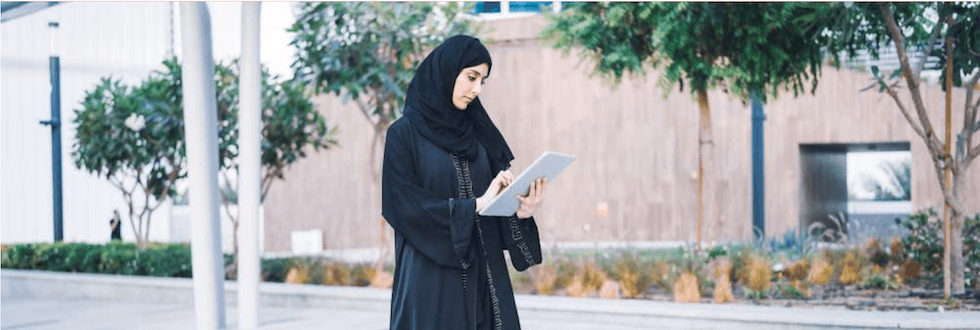
Foreign Direct Investment trends in KSA
In 2022, G20 nations contributed 32% to Saudi Arabia’s foreign direct investment (FDI) stock, with the United States leading at 10% and the United Kingdom following at 8%. Additionally, EU countries collectively accounted for 29% of the total FDI stock in Saudi Arabia.

In 2022, FDI in Saudi Arabia was concentrated in five sectors: manufacturing, transportation and storage, wholesale and retail trade, vehicle repair, and financial and insurance activities. These sectors collectively accounted for SAR 535.3 billion, representing over 70% of the total FDI stock across all economic activities.
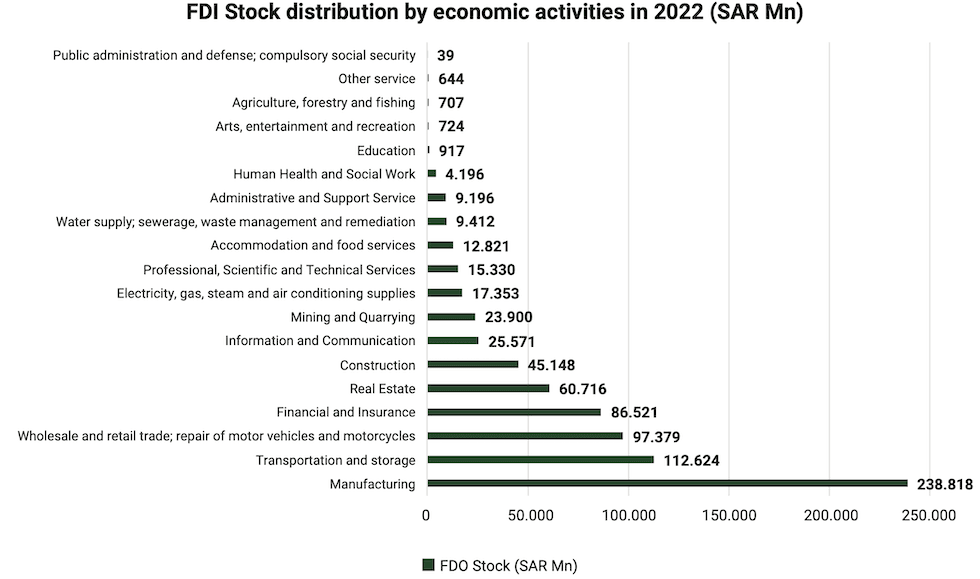
Competitive Landscape
The Saudi competitive landscape is evolving with a growing emphasis on private sector participation and international investments. Regulatory reforms aimed at boosting business ease and transparency are driving this evolution. These changes, coupled with the government’s Vision 2030, provide a conducive environment for sustainable growth, and make the Kingdom an attractive market for investment and business operations.

Opportunities across Sectors
Saudi Arabia’s Vision 2030 is not just about diversifying the economy; it’s also about enhancing and expanding opportunities across various sectors. This section delves into each sector, highlighting opportunities, key insights, planned investments, and job creation.

Oil and Gas
- Opportunities: Despite a shift towards diversification, the oil and gas sector remains crucial, with opportunities in technology, efficiency, and sustainability.
- Insight: Saudi Aramco, headquartered in Dhahran, is one of the world’s largest and most profitable oil companies.
- Planned Investment: Saudi Aramco announced plans to increase its capital expenditure to $35-40 billion annually through 2025, focusing on capacity expansion and sustainability initiatives.
- Job Creation: The sector is projected to create over 10,000 jobs by 2025, especially in innovative and sustainable oil technologies.
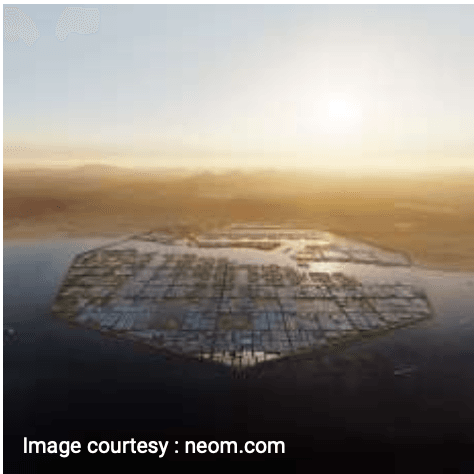
Technology and Innovation
- Opportunities: The focus is on becoming a regional tech hub, with substantial openings in digital infrastructure, AI, and emerging technologies.
- Insight: NEOM city, a part of Vision 2030, is planned to be a fully automated city, utilizing AI, renewables, and biotechnology.
- Planned Investment: NEOM city has a budget of $500 billion, with technology investments spanning AI, IoT, and robotics.
- Job Creation: Expected to generate over 20,000 jobs by 2030 in various tech fields, including AI, software development, and data analysis.

Tourism and Entertainment
- Opportunities: With projects like the Red Sea Project, there are numerous opportunities in hospitality, leisure, and entertainment.
- Insight: Qiddiya Entertainment City aims to be the world’s largest entertainment city, surpassing Walt Disney World in Florida.
- Planned Investment: The Red Sea Project, with an investment of over $10 billion, aims to set a new standard in sustainable development. Qiddiya is expected to attract investments worth $8 billion by 2030.
- Job Creation: These initiatives are projected to create over 50,000 jobs in the tourism and entertainment sector by 2030.

Healthcare and Life Sciences
- Opportunities: Growing demand for advanced medical technologies, pharmaceuticals, and healthcare IT solutions.
- Insight: Saudi Arabia aims to become a leader in genomic research and personalized medicine in the Middle East.
- Planned Investment: Approximately $66 billion is earmarked for healthcare development projects through 2030, focusing on hospital construction, medical technologies, and pharmaceutical development.
- Job Creation: An estimated 25,000 jobs in healthcare and related fields are expected to be generated by 2030.

Industrial Sector
- Opportunities: With a 281% increase in investments, the industrial sector is burgeoning, particularly in areas like MODON.
- Insight: Saudi Arabia’s industrial cities have become beacons of modern manufacturing and technology within the region.
- Planned Investment: The industrial sector, led by initiatives like MODON, has witnessed a surge in investments, with a commitment of $28 billion for various industrial and manufacturing projects through 2025.
- Job Creation: This sector is expected to create over 35,000 new jobs by 2025, focusing on manufacturing, industrial innovation, and technology.

Other Emerging Sectors
- Opportunities: Diverse, covering chemicals, real estate, fossil fuels, automobiles, tourism, plastics, and machinery.
- Insight: The push towards non-oil sectors has led to a boom in diverse industries, from automobile manufacturing to plastic recycling.
- Planned Investment: A massive $1.3 trillion private sector investment push led by firms like Aramco and SABIC targets diversification across chemicals, real estate, fossil fuels, automobiles, and more.
- Job Creation: These investments are forecasted to generate more than 100,000 jobs across these sectors by 2030.
“There is an underestimated industry right now that’s trying to find its feet, and that’s mining. [...] Mining in Saudi is one of the areas that I would pay particular attention to, [as it] is a massive industry that is about to see an uplift of considerable proportion. [Additionally], the construction industry is obviously dominating the market and the attention today, [...] the hospitality industry is [another] area that’s grabbing a lot of attention [with] higher-end brands [...] coming in tied into the construction and the tourism industry.”
Julien Pescheux, Former EVP of Saudi Airlines Catering Company (SACC)

Government Initiatives and Support
In line with Vision 2030, the Saudi government has implemented a range of initiatives to foster a conducive environment for businesses and entrepreneurs. This section provides an overview of these initiatives, including investment incentives, regulatory support, public-private partnerships, and special economic zones.
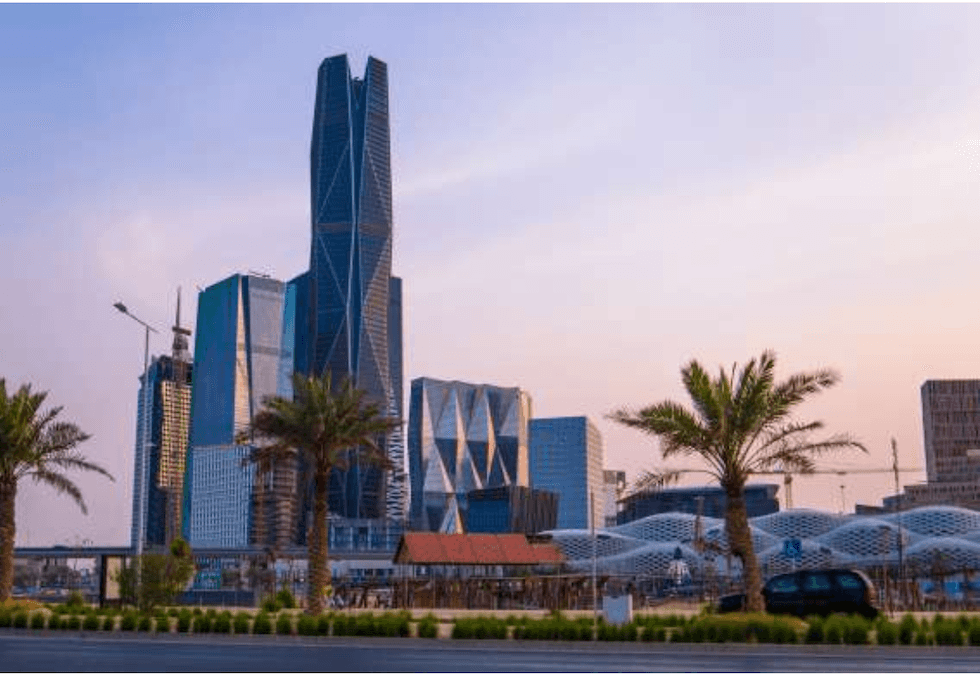
Investment Incentives
-
Financial Incentives: The Saudi government offers various financial incentives, including tax breaks, grants, and subsidies, particularly in sectors identified as strategic under Vision 2030. These incentives aim to reduce operational costs and encourage investment in these sectors. For example:
- Tax Breaks for Mega Projects: In line with Vision 2030’s objectives, the Saudi government offers significant tax incentives for investments in mega projects. A prime example is the NEOM project, a $500 billion futuristic city planned in the northwestern region of the country. Investors and businesses operating in NEOM benefit from competitive tax breaks, including reduced corporate taxes and customs duties exemptions, aimed at attracting global investors and companies to this high-tech development.
- Subsidies in Renewable Energy Sector: The Saudi government, through the Renewable Energy Project Development Office (REPDO), offers incentives for projects in the renewable energy sector. This includes subsidies and financial support for solar and wind energy projects. An example is the Sakaka solar project, the first utility-scale renewable energy project in Saudi Arabia, where the government provided financial subsidies and support to ensure competitive pricing and attract investment. These subsidies are part of the government’s broader strategy to diversify its energy mix and develop domestic renewable energy resources.
-
Access to Funding: Through entities like the Saudi Industrial Development Fund (SIDF) and the Public Investment Fund (PIF), the government provides financial support and low-interest loans to startups and SMEs. Additionally, venture capital and private equity funding are being facilitated for innovative and high- potential businesses. The government, through entities like the SIDF, offers low-interest loans and financial support to sectors like mining, logistics, and energy. For example:
- SIDF recently launched a program dedicated to financing renewable energy projects, offering loans of up to $267 million with extended repayment periods.
- PIF, Saudi Arabia’s sovereign wealth fund, has invested in numerous startups and SMEs. A notable example is the $45 billion investment in SoftBank’s Vision Fund, which supports a wide range of tech startups globally.
-
R&D Support: Incentives for research and development, particularly in technology and industrial sectors, are a key focus. This includes funding for collaborative projects between businesses and academic institutions. For example:
- The King Abdulaziz City for Science and Technology (KACST) provides grants and funding for R&D initiatives, particularly in sectors like renewable energy and biotechnology. KACST’s partnership with Taqnia Energy for developing renewable energy technologies is a testament to this support.
RHQ Program
As part of Vision 2030, the Regional Headquarters (RHQ) Program in KSA was formed in February 2021 where the RHQ is defined as “a unit of multinational group under the laws of Saudi Arabia for the purpose of supporting, managing, and providing strategic direction to its branches, subsidiaries and affiliates operating in MENA region”. This program aims to attract multinationals to move their regional headquarters to the kingdom and was founded jointly between Ministry of Investment (MISA) and Royal Commission for Riyadh City (RCRC). One important aspect of the initiation of the RHQ program is the announcement of the Saudi government that by 2024, it will stop contracting with multinationals that don’t move their regional headquarters to KSA. To support this announcement, on December 27, 2022, the KSA Council of Ministers implemented regulations barring government agencies from contracting with companies or their affiliates who don’t have a regional headquarters within the Kingdom, effective January 1, 2024.
Once multinationals obtain their Regional Headquarters (RHQ) license, the RHQ program offers them a number of incentives in terms of tax facilitations, hence different tax schemes such as the 0% corporate tax and 0% withholding tax for approved activities of regional headquarters of international companies for 30 years. According to the finance minister, these tax incentives will increase visibility and certainty for future planning related to expanding the MNCs operations in the region, after their RHQ move to the kingdom. This is added to the “relaxed ‘Saudization’ requirements and work permits for the spouses of RHQ executives”. The program provides MNCs the necessary support for setting up their regional HQ in the kingdom from relocation and concierge services (temporary office space, apartments, event organizers, reservations ...) to facilitation and professional services (staffing. Business setup, tax consultancy, GRO services, bank accounts ...). MNCs can also benefit, through the RHQ program, from exclusive discounts on airlines, offices accommodation and schools.

“The RHQ program is a step that companies must take to have access to large public projects opportunities. Since the regional economy’s centre of gravity is shifting to KSA which is a booming market, it makes sense for companies to be under the RHQ program to benefit from market offerings. It is also logical to move due to the increased demand from the private sector (Saudi owned private companies) to have a long-term committed local partner on the ground. A local presence is becoming necessary to be successful in Saudi Arabia.”
Julien Pescheux, Former EVP of Saudi Airlines Catering Company (SACC)

Through all the incentives, facilitations and support provided, the RHQ program is positioning the kingdom as a regional business and commercial leader and an international investment hub. Indeed, as of December 2023, the kingdom exceeded its initial target (of attracting160 HQs) to reach more than 200 RHQ licenses for multinational companies (from Europe and the US mainly) that relocated their headquarters to KSA and jumping from 44 MNCs in 2021 (78% increase between 2021 and 2023). The kingdom’s goal is to secure 480 RHQ licenses by 2030.
This positive receptiveness of the program brings many benefits to Saudi (whether for citizens, residents, or businesses) that are not limited to promoting economic diversification and attracting skilled local and foreign talents but could also lead to positive impact on GDP growth through drawing foreign investment.
Regulatory Support
- Business Reforms: Saudi Arabia has implemented significant business reforms to simplify business registration processes, protect investors, and improve the overall ease of doing business. Significant reforms under the Saudi Arabian General Investment Authority (SAGIA) include the reduction in the time required to start a business, now down to only 18 days, compared to 34 days in previous years.
- Intellectual Property Protections: Strengthening IP laws and enforcement mechanisms to protect innovations and trademarks, thereby encouraging investment and innovation. The Saudi Authority for Intellectual Property (SAIP) has been established to strengthen IP laws. An example is the recent restriction on IP violations, ensuring a secure environment for business innovations.
- Labor Law Reforms: Recent labor law reforms aim to create a more flexible and competitive labor market, benefiting both employers and employees. The Nitaqat program is an example of labor reform, designed to increase the employment of Saudi nationals in the private sector, categorizing companies based on their Saudization levels.

Public-Private Partnerships (PPPs)
- Infrastructure Development: PPPs are being actively promoted in infrastructure projects, including transportation, healthcare, and education, as part of the country’s infrastructure development strategy. The Riyadh Metro project, a $22.5 billion venture, is a significant PPP example involving multiple international firms in the construction of a major public transport system.
- Strategic Partnerships: The government encourages strategic alliances between public entities and private companies, especially in sectors like renewable energy, technology, and tourism. The Saudi REPDO involves PPPs in developing the country’s renewable energy sector, with projects like the Sakaka PV IPP, a $320 million solar park.
Special Economic Zones

As a cornerstone of Vision 2030, NEOM is not just a new city but a special economic zone with its regulatory framework and business-friendly environment, aimed at attracting global investment and innovation. $500 billion mega-project as already mentioned, NEOM is envisaged as a high-tech, fully automated city, integrating smart city technologies, and serving as a hub for innovation
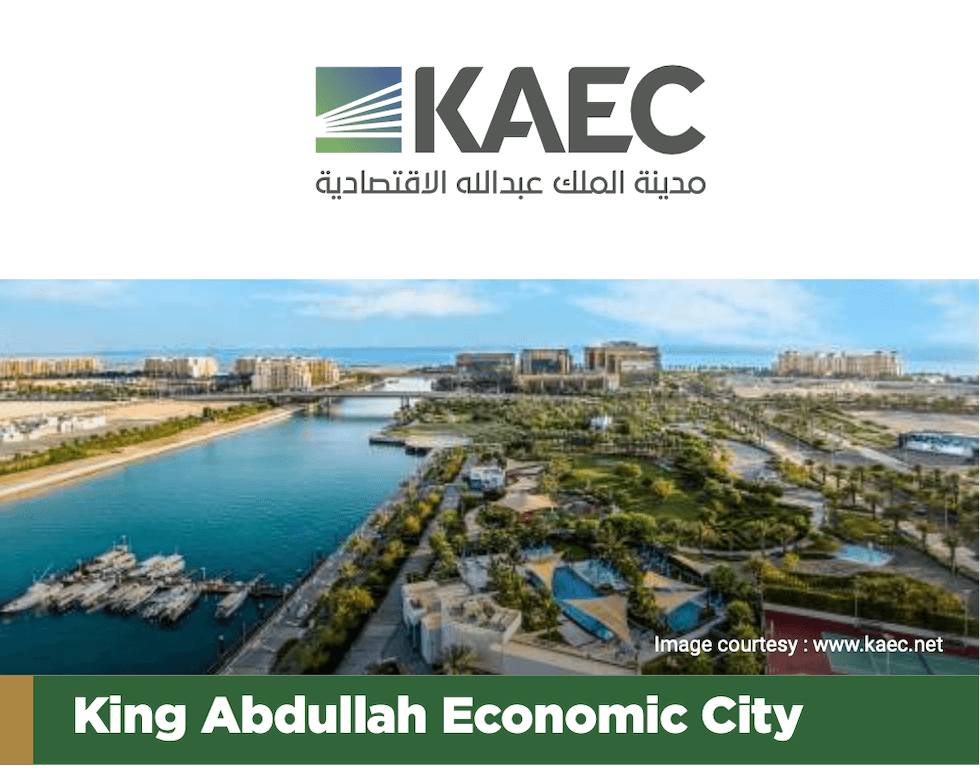
Another special economic zone offering competitive incentives, world-class infrastructure, and access to global markets, particularly for logistics and manufacturing businesses. Spanning over 181 square kilometers, KAEC has attracted global companies like Pfizer and Mars, benefiting from its strategic location and advanced infrastructure
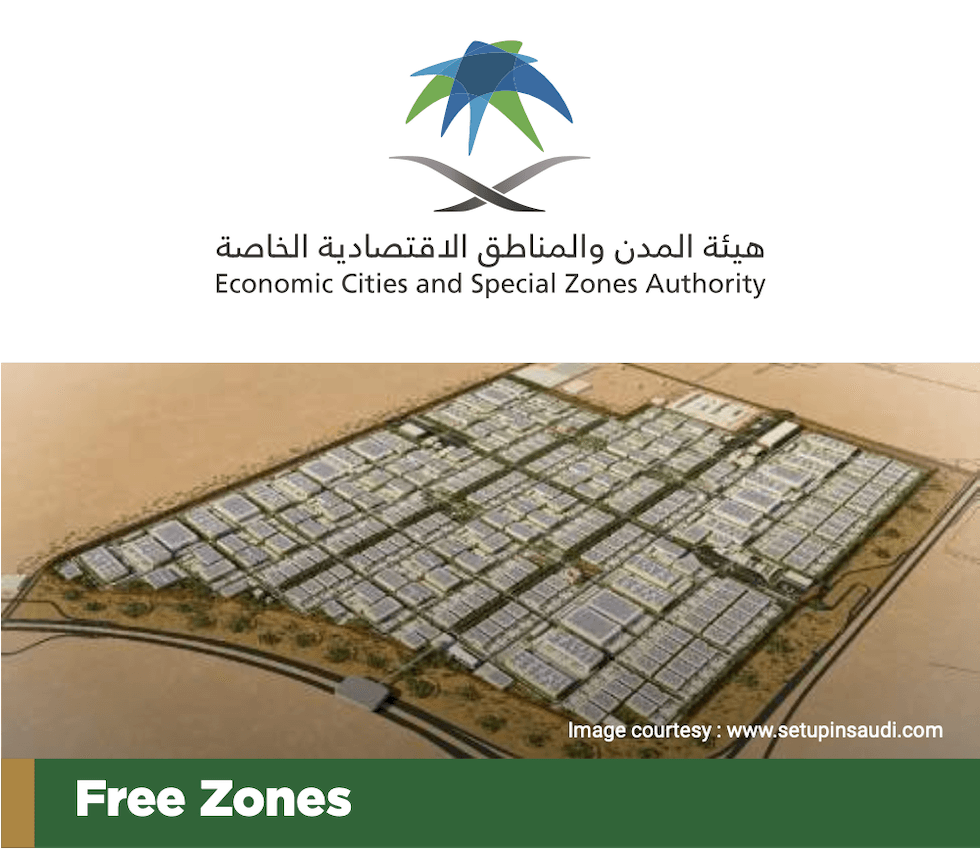
Saudi Arabia is planning to establish free zones in certain areas, offering benefits such as 100% foreign ownership, tax exemptions, and simplified customs procedures. The planned King Salman Energy Park (SPARK) is set to be a fully integrated energy hub with offerings like tax exemptions and duty-free zones, aiming to attract international energy firms.

These include industrial and technological parks, such as the Riyadh Techno Valley and the MODON Industrial Cities, which offer specialized infrastructure and services tailored to specific industries. Riyadh Techno Valley, affiliated with King Saud University, focuses on technology and innovation, fostering partnerships between academia and industry, with companies like Huawei and Siemens involved in collaborative projects.
The Saudi government’s initiatives and support mechanisms are integral to the Kingdom’s economic transformation. These measures, ranging from investment incentives and regulatory support to PPPs and special economic zones, are designed to create a vibrant ecosystem for businesses and entrepreneurs. These efforts not only align with Vision 2030’s objectives but also position Saudi Arabia as a promising destination for global investors and business leaders.
Commercial Relationship with Europe
From a business perspective, the historical relationship between Saudi Arabia and Europe presents several interesting aspects.

Oil and Energy Sector
The discovery of oil in Saudi Arabia and its subsequent development by American companies drew significant interest from European nations. European countries, particularly the UK and the Netherlands (home to oil giants like BP and Royal Dutch Shell), sought to establish economic ties with Saudi Arabia, focusing on oil exploration and production. This set the stage for long-standing business relationships in the energy sector.
Today, European energy companies continue to engage in significant projects in Saudi Arabia. For instance, companies like Total (France) have been involved in joint ventures for petrochemical projects in the Kingdom. The energy sector is still a significant part of the relationship, although there’s a growing focus on renewable energy and sustainable practices, reflecting global sustainability trends and the goals of Vision 2030. European companies, known for their expertise in renewable energy, are actively participating in Saudi Arabia’s shift towards solar and wind energy. For example, Spanish and Italian companies have been bidding on solar and wind power projects in the Kingdom.
Defense and Aerospace
Europe has been a key partner for Saudi Arabia in defense and aerospace. European defense contractors, like BAE Systems (UK) and Airbus (pan-European), maintain substantial defense contracts with Saudi Arabia, providing military equipment and aerospace technology. These relationships have evolved to include not just sales but also collaborative ventures and technology transfers.
“There are some historically strong sectors that characterize the commercial and business relationships related to French business activity in KSA and vice versa such as defence, aviation, infrastructure, and energy. The new sectors in which reciprocal business relationship is increasing are aerospace, ICT, healthcare, hospitality, entertainment, and media. Giga projects are also providing new opportunities in terms of architecture and internal design. The digitalisation of all sectors and processes also offers interesting opportunities to French companies.”
Guillaume Rebiere, Administrative Manager / Chief of Staff Saudi French Business Council (CAFS)
French-Saudi Business Relationships
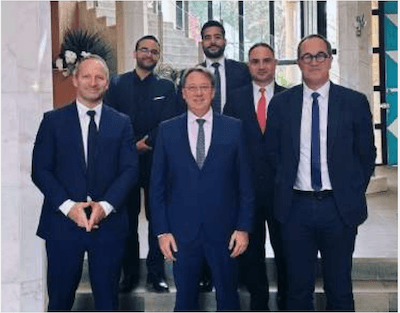 Franck Riester, the Minister Delegate for Foreign Trade, Attractiveness, Francophonie, and French Nationals Abroad, embarked on an official three-day visit to Saudi Arabia in early March 2024. This visit aimed to achieve three key objectives: Firstly, to bolster France’s collaboration with Saudi Arabia, enabling the continued export of an increasingly diverse range of goods and services to France and the EU. Secondly, to provide support in critical areas such as tourism, energy diversification, and economic expansion. Lastly, to ensure tangible cooperation, ensuring French companies thrive in vital sectors including tourism, energy, water, transportation, and health within the country. At this juncture of economic opportunities, the France
2030 program spearheaded by Emmanuel Macron aligns harmoniously with the Vision 2030 initiated by Crown Prince Mohammed bin Salman. Both initiatives present genuine synergies for the two nations to cultivate in cutting-edge sectors such as decarbonized energies, sustainable cities, innovative mobility, artificial intelligence, and cybersecurity.
Franck Riester, the Minister Delegate for Foreign Trade, Attractiveness, Francophonie, and French Nationals Abroad, embarked on an official three-day visit to Saudi Arabia in early March 2024. This visit aimed to achieve three key objectives: Firstly, to bolster France’s collaboration with Saudi Arabia, enabling the continued export of an increasingly diverse range of goods and services to France and the EU. Secondly, to provide support in critical areas such as tourism, energy diversification, and economic expansion. Lastly, to ensure tangible cooperation, ensuring French companies thrive in vital sectors including tourism, energy, water, transportation, and health within the country. At this juncture of economic opportunities, the France
2030 program spearheaded by Emmanuel Macron aligns harmoniously with the Vision 2030 initiated by Crown Prince Mohammed bin Salman. Both initiatives present genuine synergies for the two nations to cultivate in cutting-edge sectors such as decarbonized energies, sustainable cities, innovative mobility, artificial intelligence, and cybersecurity.
Notably, significant deals and initial pacts worth $2.9 billion were inked at the French-Saudi Investment Forum in June 2023, convened in Paris, bringing together policymakers, business leaders, and entrepreneurs from both nations.
The presence of French companies in Saudi Arabia has expanded significantly by 43% since 2020. Concrete examples include Vinci Construction’s involvement in the Riyadh Metro project, Total’s investments in renewable energy projects, Accor’s expansion of luxury hotel chains across the Kingdom, and the Agence Française de Développement’s contribution to sustainable development projects in Al Ula.
The French Chamber of Commerce (CAFS) boasts over 200 members, with more than 110 firms currently operating in the Kingdom. Additionally, 360 licenses have been granted to French wholly owned companies or joint ventures, further enriching the economic landscape of the country.
The bilateral trade figures are flourishing, with goods exchanges reaching $11 billion in 2023, marking an 18% increase compared to 2016. French exports to Saudi Arabia have been on a consistent rise since 2019, amounting to $4.8 billion in 2023. Moreover, France’s foreign direct investment in Saudi Arabia soared to nearly $6 billion in 2022. During the visit, the French minister coincided with the commencement of activities and festivities for the Francophonie festival. He extended greetings to the French and Francophone community in Saudi Arabia, actively promoting French culture and language in the Kingdom. With nearly 7,000 French citizens, it stands as the largest EU community in Saudi Arabia. The dynamics are robust, evidenced by a 5% increase in French residents in 2022, particularly in Riyadh, with a notable 7.4% surge in 2023.
Furthermore, French investment has been instrumental in various sectors, including technology, infrastructure, healthcare, and education. For instance, Thales Group has been pivotal in developing cybersecurity solutions, while Airbus has contributed to the modernization of aviation infrastructure. French universities and educational institutions have also established partnerships with Saudi counterparts to enhance knowledge exchange and skills development.
Saudi Arabia is reevaluating and rebalancing its global partnerships and commercial alliances. Now is the time for French companies to investigate and invest in Saudi Arabia.
Infrastructure Development
European companies have played a crucial role in Saudi Arabia’s infrastructure development. From building airports and highways to developing telecommunications networks, European expertise has been integral to Saudi Arabia’s modernization efforts. Today, this expertise is leveraged towards the diversification and modernization goals in line with Vision 2030 – this includes involvement in megaprojects like NEOM and the Red Sea Development Project. Another example would be Siemens’ (Germany) and Alstom’s (France) participation in the Riyadh Metro project. Additionally, there’s a growing presence of European tech companies in the Saudi market, aligning with the Kingdom’s digital transformation goals.

Trade Relations and Bilateral Agreements
The historical trade ties between Saudi Arabia and European nations have been marked by various bilateral agreements, facilitating trade in goods ranging from petrochemicals to luxury items. Trade relations continue to be strong, with Saudi Arabia being a significant importer of machinery, vehicles, and pharmaceutical products from Europe.
Recent trade activity between Europe and Saudi Arabia has been characterized by several key trends and developments:
Diversification of Trade: While oil and petrochemicals remain significant in the trade relationship, European countries are importing more non-oil products from Saudi Arabia, such as plastics, organic chemicals, and metals. Conversely, Saudi Arabia is importing a broader range of goods from Europe, including machinery, automobiles, pharmaceuticals, and high-tech products.
Increase in Bilateral Trade Agreements: Saudi Arabia and various European countries have been working on enhancing bilateral trade agreements aiming to facilitate trade, reduce barriers, and increase mutual investments. For example, in a recent forum held in Paris, Saudi Arabia and France signed $2.9 billion worth of investment deals and initial pacts. These accords covered a wide range of sectors, including clean energy, tourism, manufacturing, defense, health, and education. Another recent example is Saudi Arabia and Germany’s launch of seven agreements aimed at boosting investment cooperation. These memoranda of understanding included sectors such as chemicals, waste management, renewable energies, engineering, advanced industries, automotives, and technology.
Saudi-European Union (EU) Economic Dialogues: There have been ongoing economic dialogues and forums between Saudi Arabia and the EU, aimed at strengthening economic ties and discussing ways to enhance trade and investment.
Impact of Global Economic Trends: Global economic conditions, including the aftermath of the COVID-19 pandemic and fluctuating oil prices, have influenced trade activities. Both regions have shown resilience and adaptability in maintaining and growing their trade relationship.
Overall, the recent trade activity between Europe and Saudi Arabia demonstrates a dynamic and evolving relationship, moving beyond traditional commodities to encompass a wider range of sectors and interests. The involvement of European countries in sectors like renewable energies and technology underscores the mutual interest in sustainable development and technological advancement. This shift is indicative of both regions’ broader economic strategies and global economic trends.
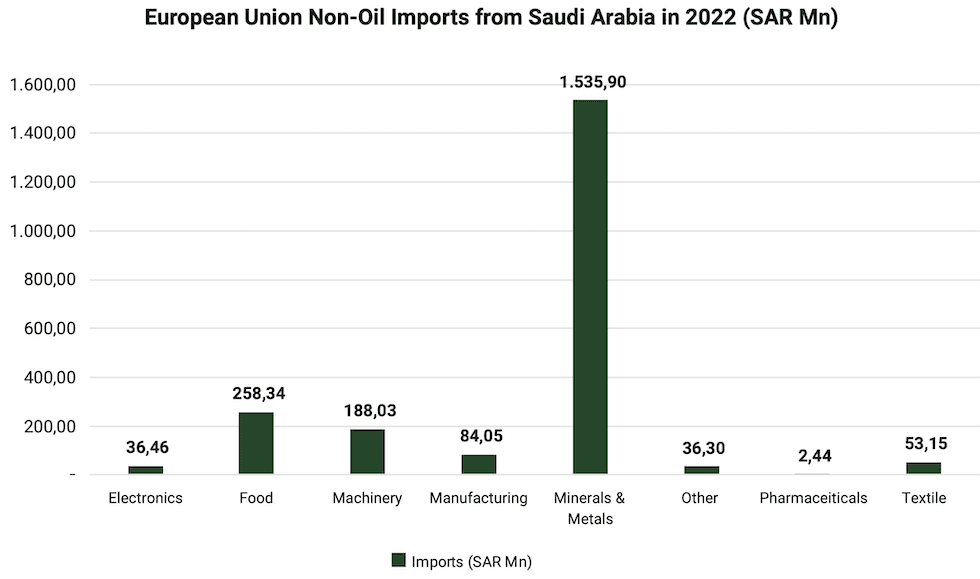

Cultural and Educational Exchanges
The relationship has extended beyond just business and trade. There have been significant cultural and educational exchanges, with many Saudi students studying in European universities and vice versa. These exchanges have fostered a deeper mutual understanding that can facilitate business relations through various initiatives encouraging academic, cultural, and business exchanges. Scholarships and educational partnerships, such as the King Abdullah Scholarship Program, enable Saudi students to study at European universities, fostering cultural and educational ties.
The exchange of cultural and educational products is also a growing aspect of the trade relationship. This includes educational materials, books, and technologies related to cultural preservation and exchange.
Investment Flows
Saudi Arabia has been a significant investor in European markets, with PIF investments spanning diverse sectors such as real estate, technology, and finance. Conversely, European investment in Saudi Arabia has increased, especially with the Kingdom opening up its economy under Vision 2030.

Foreign Direct Investment
Foreign Direct Investment (FDI) plays a significant role in the commercial relationship between Europe and Saudi Arabia, reflecting the evolving economic dynamics and strategic priorities of both regions. Here are key aspects of FDI in this relationship

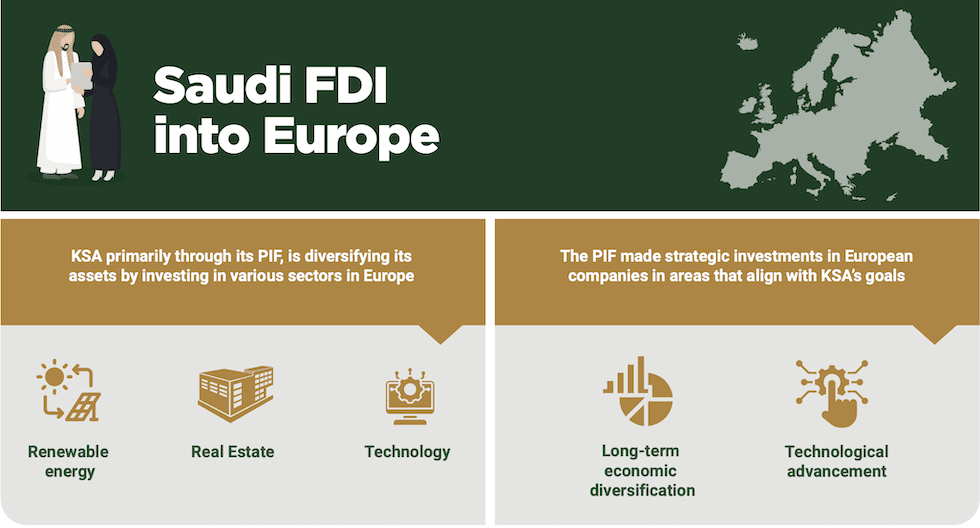


Joint Ventures and Collaborations
Technology and Innovation: There are increasing joint ventures and collaborations in technology and innovation between European entities and Saudi counterparts. These are not only investment-driven but also focus on knowledge transfer and capacity building.

Impact of Geopolitical and Economic Factors
Oil Market and Global Economy: Fluctuations in the oil market and the global economic climate can impact the flow of FDI. Both regions monitor these factors closely to manage investments effectively.

Sustainability and Green Initiatives
With a global focus on sustainability, there’s growing interest from Saudi investors in European green technologies and renewable energy projects. This is in line with Saudi Arabia’s objectives to reduce its carbon footprint and develop a green economy.
Top 5 Active Sectors in Saudi Arabia-Europe Relationship
The top 5 sectors that are most active in the commercial relationship between Saudi Arabia and Europe are:

These sectors not only reflect the traditional strengths of Saudi Arabia and Europe but also align with new strategic directions under Saudi Arabia’s Vision 2030 and Europe’s green and digital transformation initiatives. The relationship in these areas is marked by both trade and investment, including joint ventures, strategic partnerships, and technology transfers.


Infrastructure and Construction
| Company name | Company Country | Project Description | Project amount |
|---|---|---|---|
 | Low |
| 6.07 Billion Euros |
 | Medium to high |
| 425 Million Euros |
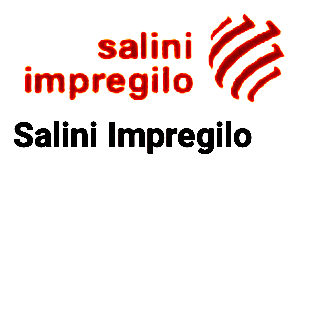 | High |
| 5.21 Billion USD |
Defense and Aerospace
| Company name | Company Origin | Type | Project Description | Project amount |
|---|---|---|---|---|
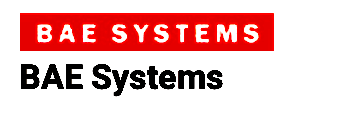 | UK | Sales | Sale of 72 Eurofighter Typhoon fighter aircraft in 2007 | 4.43 Billion Pound |
 | France | Sales | Talks are underway between Saudi Arabia and Dassault Aviation for the potential purchase of 54 Rafale fighter aircraft | Not yet disclosed |
 | France | JV | Collaboration with SAMI to establish an advanced aerostructure production facility to drive Saudi Arabia’s engineering and manufacturing expertise | Not Applicable |
 | France | JV | Collaboration with SAMI (Saudi Arabian Military Industries – Established in 2017 and aims to localize KSA’s defense industry) on various projects, including maintenance and logistics for military aircraft | Not Applicable |
Renewable Energy and Green Technologies
| Company name | Company Country | Sector | Project Description | Project amount |
|---|---|---|---|---|
| EDF | France | Renewable Energy |
| 500 Million USD |
| Air Liquide | France | Green Technologies | Construction of hydrogen production and purification units in Yanbu serving a massive 400,000-barrel-per-day oil refinery, enabling cleaner fuel production that meets environmental standards | 350 Million Euros |
Healthcare and Pharmaceuticals
| Top Corporations | Country | Sales (M$) (2018) |
|---|---|---|
| Pfizer | Japan | 644 |
| Sanofi | France | 490 |
| Novartis | Swiss | 439 |
| Spimaco | Saudi | 409 |
| Tabuk | Saudi | 404 |
| GSK | UK | 388 |
| Hikma Pharma | UK | 321 |
| NN | India | 313 |
| MSD | US | 274 |
| AstraZeneca | UK | 235 |
AlUla Project Overview
“We will turn AlUla into a Living Museum, creating memories that visitors will share with the world. Heritage is the main asset of AlUla. We have to use this asset to offer visitors a unique journey through time where they can enjoy a living museum.”
His Royal Highness The Crown Prince Mohammed bin Salman, Chairman of the Royal Commisson for AlUla

The Royal Commission for AlUla made a groundbreaking announcement on April 10th, 2018, marking the inception of a significant cooperative endeavour integral to the ambitious developmental agenda of AlUla. Nestled in the northwest of Saudi Arabia, AlUla stands as a region of profound natural splendour and cultural importance, notably hosting the Nabataean city of Hegra, an esteemed UNESCO World Heritage Site since 2008.
Under the distinguished presence of His Royal Highness Crown Prince Mohammed bin Salman, alongside Emmanuel Macron, President of the French Republic, and Gérard Mestrallet, the Special Envoy of the French President for AlUla, an intergovernmental pact was formalized. His Highness Prince Badr bin Abdullah bin Farhan Al-Saud, Governor of AlUla, and Jean-Yves Le Drian, the Minister for Europe and Foreign Affairs of the French Republic, cemented this agreement.
AlUla epitomizes Saudi Arabia’s unwavering commitment to spearheading a paradigm of sustainable cultural tourism, with a vision meticulously crafted in collaboration with both international and local stakeholders. The distinctive cultural, historical, natural, and archaeological riches of AlUla are poised to be unveiled to the global audience through this ambitious tourism initiative. The Saudi-French collaboration for AlUla serves as a tangible manifestation of the fortified ties between Saudi Arabia and France. Aligned with the objectives of the Vision 2030 program, Saudi Arabia endeavors to foster cross-cultural dialogue and enhance global accessibility. AlUla’s narrative traces back over 4,000 years, symbolizing a rich tapestry of cultural exchange and interaction.
As the custodian of Hegra, Saudi Arabia’s inaugural UNESCO World Heritage Site, AlUla signifies the legacy of the Nabataean civilization, which presided over this pivotal juncture on the Incense Route, linking the Arabian Peninsula with Mediterranean Europe, Africa, and Asia. Through Vision 2030, this initiative aspires to position the Kingdom as a global destination while upholding its intrinsic historical and cultural essence, thereby nurturing the tourism and cultural sectors concurrently.
Central to Saudi Arabia’s ethos is the safeguarding of its archaeological, architectural, cultural, artistic, and natural heritage, with a steadfast commitment to showcasing and preserving the unique historical treasures of AlUla. Consequently, the partnership for AlUla is underpinned by an unwavering dedication to sustainability.
Where Is AlUla
Situated in the Medina province, approximately 1,100 km away from Riyadh in the north-western region of Saudi Arabia, AlUla boasts remarkable natural and cultural riches. Encompassing an expanse of 22,561 km2, this area features a verdant oasis valley, majestic sandstone peaks, and historic sites of human civilization spanning millennia

Excitement and Ambition Behind AlUla
Nestled within the Kingdom of Saudi Arabia lies Al Ula, a region pulsating with ambition and excitement.
Historical Richness:
AlUla’s landscape is adorned with historical treasures, notably a UNESCO World Heritage site. Ambitions to preserve and showcase this heritage ignite excitement among tourists and scholars, offering glimpses into ancient civilizations.
Tourism Development:
AlUla’s ambitious tourism plans promise to transform the region into a premier destination. With projects like the Royal Commission for Al Ula (RCU)’s master plan, excitement mounts as travellers anticipate immersive experiences amidst breathtaking landscapes while preserving natural and historical assets.
Sustainable Vision:
AlUla’s ambition emphasizes sustainability and environmental stewardship alongside economic growth. Excitement resonates within sustainability initiatives aimed at preserving the delicate ecosystem and cultural heritage for future generations.
Cultural Festivals and Events:
AlUla vibrates with excitement during cultural events showcasing artistic prowess and traditional performances. These celebrations position AlUla as a cultural hub and a beacon of creativity in the region
Global Collaboration:
Ambitions in AlUla transcend national borders, fostering collaborations with international partners in tourism, archaeology, and sustainable development. Excitement generated by these partnerships underscores Al Ula’s emergence as a global destination for cultural exchange and cooperation
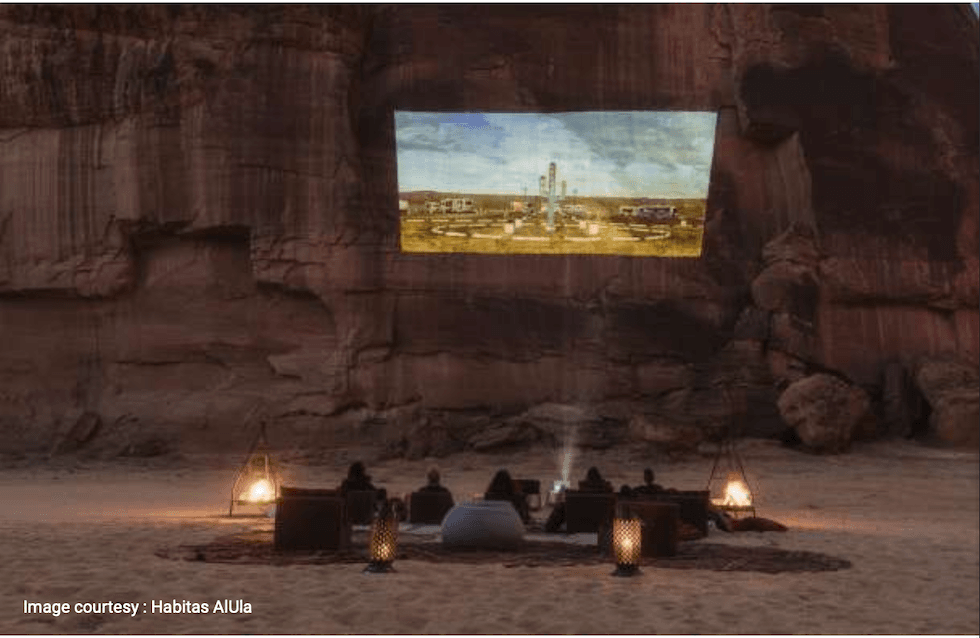
The French Agency For The Advancement Of AlUla
Emerging from this accord, the French Agency for the Advancement of AlUla (AFALULA) endeavors to harness French expertise—comprising specialists, operators, and enterprises—and collaboratively assist its Saudi counterpart, the Royal Commission for AlUla (RCU).
AFALULA convenes a consortium of leading global specialists across vital domains of the initiative: museum curation, archaeology, architectural and urban design, agriculture and botanical sciences, tourism, education, infrastructure, equestrianism, security, water resources, and environmental stewardship.
Why Is The French Collaboration So Significant?
France emerges as a natural ally in unveiling AlUla and the Nabatean city of Hegra, designated a UNESCO World Heritage site since 2008. France boasts a rich history of commitment to Saudi Arabian archaeology.
Recognized globally for its cultural significance and high quality of life, France stands out as a premier tourist destination. Saudi Arabia seeks to collaborate with top-tier experts worldwide, prioritizing the involvement of local communities in development initiatives. Participating in AlUla’s development promises to rejuvenate and fortify the bonds between the two nations.
What Are The Commitments Of Saudi Arabia and France?
Saudi Arabia and France are dedicated to realizing tangible initiatives that benefit both nations.
They share a mutual political commitment to safeguarding and advancing world heritage and the environment, fostering sustainable tourism, cultural and educational programs, and fostering intercultural dialogue.
Both parties are eager to preserve, enhance, and promote the significant historical sites of AlUla, including the archaeological site of Hegra, among others. Building upon this shared determination, two specific outcomes have already been established:
- An intergovernmental agreement pertaining to the cultural, heritage, natural, tourism, human, and economic development of AlUla County between both nations.
- A memorandum of understanding (MoU) between the Royal Commission for AlUla and leading international academic and vocational institutions in France, facilitated by Campus France, to accommodate students from AlUla.
What Does AlUla Embody?

Positioned at a historical convergence point of civilizations, the AlUla valley epitomizes a rich legacy of cultural exchange spanning 4,000 years. This legacy is exemplified by the Nabataean civilization, which flourished as stewards of this vital junction along the Incense Route, linking the Arabian Peninsula to Mediterranean Europe, Africa, and Asia.
Saudi Arabia aspires for contemporary global cultures and industries to converge along this ancient trade route, envisioning AlUla as a premier destination for innovative collaboration and immersive visitor experiences.
The Royal Commission for AlUla is spearheading a pioneering initiative for sustainable cultural tourism, meticulously crafting a vision and program in collaboration with both international and local communities.
AlUla’s unparalleled cultural, historical, natural, and archaeological riches will be unveiled to the world through the most ambitious tourism endeavor in Saudi Arabia’s history.
Enriching AlUla’s Cultural Benchmark: Collaborating With France on Knowledge and Skills
- The evolution of AlUla is poised to exemplify a dedication to fostering global cooperation, interactions, and tourism, in alignment with Vision 2030, Saudi Arabia’s blueprint for future progress.
- Saudi Arabia and France both share a deep-seated commitment to preserving and promoting world heritage and culture, recognizing its role in driving international tourism. This shared aspiration to endorse responsible tourism, safeguard the environment, and invest in top-tier cultural and educational initiatives serves as the foundation for the mutual respect and open dialogue between the two nations. This commitment will materialize through several initiatives: implementation of sustainable practices to safeguard AlUla’s local ecology and natural resources, promotion of responsible tourism practices, and the implementation of a conscientious infrastructure development plan.
- Preservation of archaeological and architectural heritage across AlUla will be a key focus.
- Efforts will be made to uncover grassroots AlUla and Saudi craftsmanship and techniques, with a focus on establishing an economic model to sustain authentic local culture and traditions.
AlUla: Saudi Arabia’s Cultural Hub Enhanced by French Collaboration?
- France has been extended an invitation to collaborate with RCU on specific cultural and artistic initiatives in AlUla, aligning with the goals of Vision 2030 and the overarching objective to cultivate a self-reliant and skilled Saudi workforce.
- AlUla is poised to serve as a model for nurturing the next generation of Saudi nationals, fostering their proficiency in creative production, contribution to arts and culture, heritage preservation, international tourism, and related industries, as outlined in Vision 2030.
- RCU is committed to establishing a global standard of excellence in heritage preservation, cultural development, and fostering a sustainable, community-led ecosystem in AlUla.
- The aim is to actively involve local residents as stakeholders in safeguarding AlUla, empowering them as primary stewards of their homeland and its rich heritage.
- Advocacy within the community will be promoted as a means to protect the natural, cultural, and historical treasures of AlUla.
- Efforts will be made to foster a spirit of communal collaboration, civic duty, and collective responsibility towards AlUla and its cherished heritage.

On June 19th, 2023, Bpifrance initiated the “French Touch Saudi Arabia” international endeavor targeting the Cultural and Creative Industries (CCI) domain, conducted in collaboration with Business France and the French Agency for the Development of AlUla (Afalula). Over the course of five days, the sixteen chosen enterprises explore the Saudi market to validate their plans for expansion into the Middle East.
The primary objective of this mission is to showcase the French Touch community, representing the essence of French creativity, supported by Bpifrance, and to advocate for French culture and lifestyle.
Saudi Arabia launched the Saudi Vision 2030 reform plan in 2016 with the aim of diversifying its economy and reducing reliance on oil. This comprehensive program seeks to bring about economic and social transformation within the Kingdom, encompassing various initiatives in archaeology, tourism, culture, education, and the arts. Since the signing of a bilateral agreement between Saudi Arabia and France in 2018, AlUla, a flagship project of Vision 2030, stands as a testament to Franco-Saudi collaboration. Situated in the Medina province, this oasis is a manifestation of the national strategy for economic diversification, community empowerment, and heritage preservation. Through such initiatives, the nation aspires to emerge as a premier global tourist destination, appealing both to international visitors and the local populace.
As part of this global undertaking, sixteen French companies are offered a comprehensive agenda comprising collective and individual activities.
Initially, the delegation convenes in Riyadh to engage with prominent stakeholders in the entertainment and cultural sectors, including the Saudi Ministry of Culture, JAX Museum, and Qiddiya. These companies will participate in tailored business meetings, networking opportunities, and exclusive dialogues with key entities overseeing Saudi mega projects.
Subsequently, the delegation proceeds to AlUla to engage with the Royal Commission for AlUla (RCU) and explore the pre-Nabataean site. Individual consultations with the RCU, responsible for the mega project, enable them to propose innovative solutions in culture and entertainment, aiming to foster enduring partnerships and contribute to the realization of the Saudi Vision 2030 objectives.


The Royal Commission for AlUla (RCU) has recently disclosed a partnership with Thales Group, a prominent French cybersecurity firm, to protect heritage sites and historic structures within AlUla.
This endeavor will harness state- of-the-art digital technologies and surveillance solutions, as unveiled during the Future Investment Initiative (FII) in Riyadh. The collaboration aims to embed advanced security measures into the RCU’s digital platforms, ensuring robust monitoring and safeguarding of public sites, heritage buildings, and historical landmarks. Its primary objective is to preserve and oversee the cultural, historical, urban, and rural areas of AlUla.
This strategic alliance further cements AlUla’s position as a significant cultural, heritage, and tourism destination, continually attracting a growing number of global visitors annually.
The agreement made with Thales encompasses the sustainable safeguarding of AlUla, including its historical riches, populace, and international guests. Utilizing advanced digital technology and surveillance tools, the valuable ancient artifacts, cultural landmarks, and heritage assets of AlUla will be under constant protection through a new security arrangement valued at SAR 159 million ($42m) between Thales and the Royal Commission for AlUla (RCU). The Strategic Security Integration Project involves collaboration between experts from the French cybersecurity firm and RCU to deploy and manage various security devices and safety solutions. This initiative aims to ensure the continuous monitoring and protection of areas of cultural and historical significance throughout AlUla, extending to crucial urban and rural sites for the safeguarding of the local community, businesses, and visitors.
AlUla County, home to a plethora of historic artifacts and treasures of national and global importance, requires specialized international expertise like that offered by Thales to shield its considerable cultural wealth from potential harm, such as vandalism or theft. This agreement builds upon a partnership established between RCU and Thales in Paris in 2021, which seeks to advance RCU’s objectives for smart and sustainable city development across various sectors including archaeology, tourism, culture, education, and the arts, aligning with Saudi Arabia’s Vision 2030 plan. To ensure the protection of significant landmarks such as the Nabatean tombs of Hegra and natural formations like Elephant Rock, the project will employ cutting-edge security systems integrated into RCU’s Integrated Smart Operations Centre for centralized and efficient operations. This setup enables security teams to promptly respond to any violations or threats. The recent agreement underscores AlUla’s increasing importance as a cultural, heritage, and tourism destination, attracting a growing number of visitors worldwide each year who are eager to experience its unique living museum.
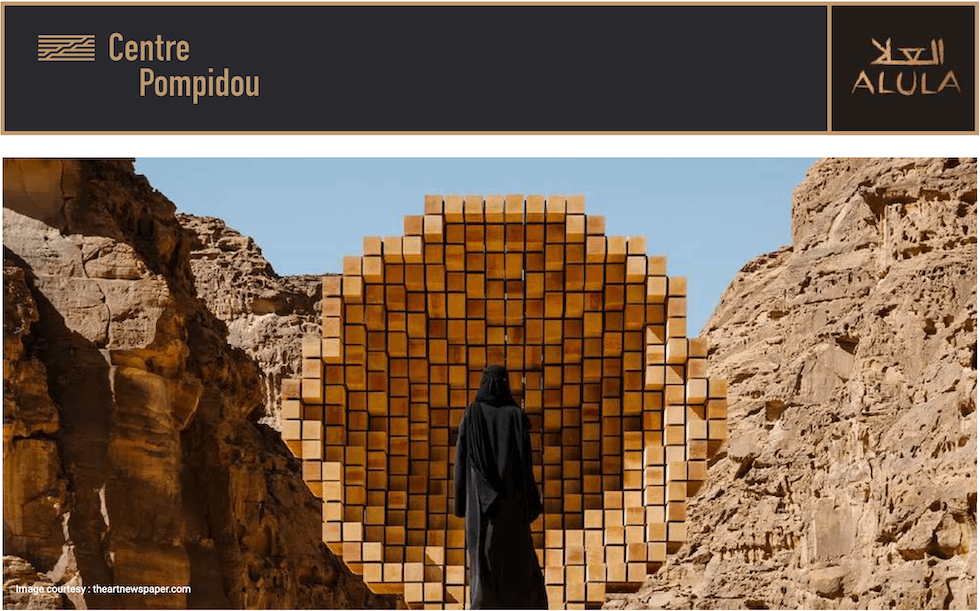
During the visit to Riyadh and AlUla by French Minister of Culture, Rima Abdul Malak, on March 12, 2023, a Memorandum of Understanding (MoU) was signed between the Royal Commission for AlUla (RCU) and the Centre Pompidou, as part of the initiative to establish a Contemporary Art Museum in AlUla.
On November 27, 2023, during H.H. Prince Badr bin Farhan Al Saud’s visit to Paris, Saudi Minister of Culture and Governor of the RCU, a partnership stemming from the MoU was formalized at the French Ministry of Culture.
Laurent Le Bon, President of the Centre Pompidou, and Amr AlMadani, CEO of the Royal Commission for AlUla, signed the agreement in the presence of H.E. Jean-Yves Le Drian, Chairman of the French Agency for AlUla Development, and Nora Aldabal, RCU’s Executive Director of Arts & Creative Industries.
Facilitated by Afalula, this collaboration aims to bolster the cultural, artistic, and creative dimensions of the AlUla site. The Centre Pompidou will lend its expertise in staff training, particularly in conservation management and mediation. Additionally, it may assist in organizing cultural events and programming. The initiative to establish a Contemporary Art Museum in AlUla has advanced with the appointment of architect Lina Gotmeh, recognized for her skill in integrating innovation with environmental consciousness. Gotmeh will craft the museum, drawing inspiration from the location and adhering to a sustainable ethos.
The museum aims to establish groundbreaking standards in eco-friendly architecture, stimulating urban revitalization and conservation efforts. It will actively involve the local community through educational workshops, school initiatives, and other engagement programs. With a clear artistic and curatorial vision, the project facilitates the exchange, acquisition, loan, and exhibition of artworks and artifacts between RCU and Centre Pompidou. Furthermore, it fosters diverse scientific and cultural endeavors focused on sharing distinctive pieces from each partner’s collection.
Centre Pompidou’s expertise in attracting global visitors, hosting cultural festivities, and promoting audience engagement will bolster RCU’s aspiration to transform AlUla into a worldwide center for cultural and heritage tourism, solidifying its reputation as the largest living museum in the world.
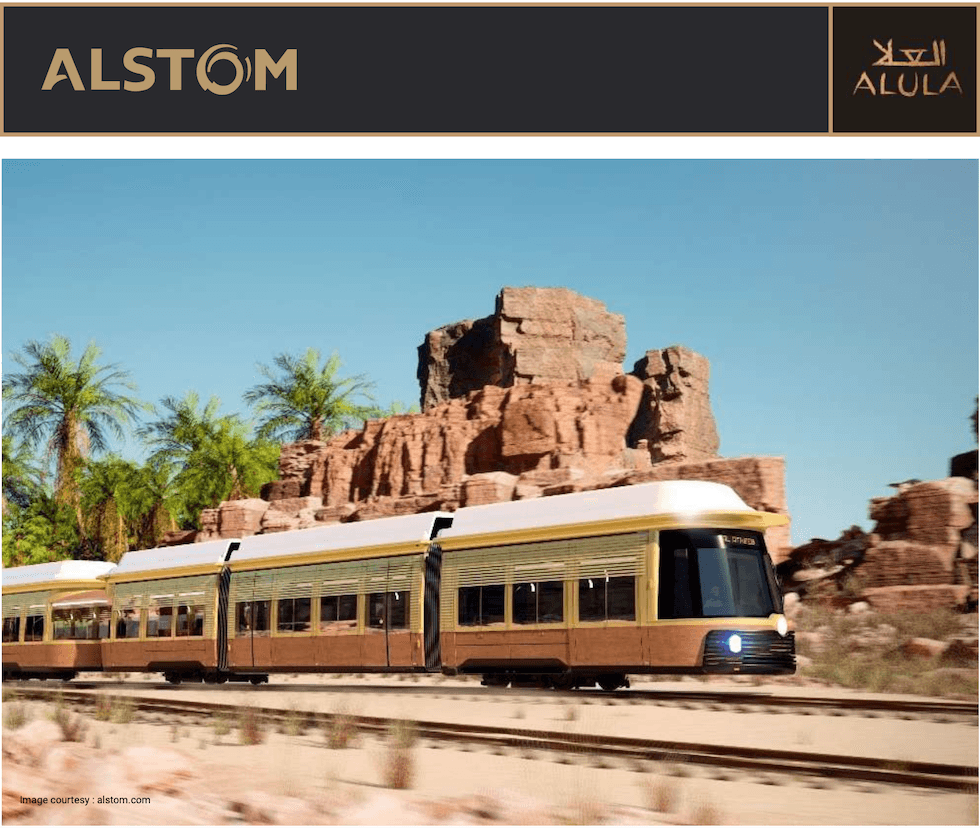
Alstom, a rail transport corporation headquartered in France, has inked a deal worth over EUR 500 million with The Royal Commission for AlUla (RCU) to construct the AlUla tramway.
This initiative entails building a tram network spanning 22.4km with 17 strategically positioned stations. Marked as the world’s lengthiest battery-powered tramway without overhead wires, this project will grant unprecedented accessibility to AlUla’s five principal historical quarters, encompassing UNESCO World Heritage sites like AlUla Old Town (District 1), Dadan (District 2), Jabal Ikmah (District 3), Nabataean Horizon (District 4), and Hegra Historical City (District 5). By interlinking these culturally significant zones, the tramway venture will epitomize a blend of historical richness, heritage, and environmentally friendly mobility unparalleled elsewhere.
Alstom is tasked with providing power, depot equipment, and comprehensive maintenance services for a decade, utilizing the HealthHub, an innovative predictive maintenance tool capable of monitoring the condition of trains, infrastructure, and signaling assets through advanced data analysis. Additionally, service teams will utilize a mobile workshop for various modifications, enhancing flexibility and trimming capital expenses. Alstom will also deliver robust training programs for tram personnel to ensure operational efficiency.
The success of this endeavor hinges on the company’s expertise in integrated railway systems. Production of the tram will take place at Alstom’s French facilities, including the La Rochelle center.


Construction has commenced on the Sharaan Resort and International Summit Centre in AlUla, Saudi Arabia, overseen by the Royal Commission for AlUla (RCU) and crafted by renowned French architect Jean Nouvel. Nestled within the rugged terrain of Sharaan Nature Reserve, the project is committed to ambitious sustainability objectives for both its construction and subsequent resort operations.
During a ceremony held at the Sharaan Nature Reserve, RCU formalized an agreement with Bouygues Construction, a prominent French engineering entity, to oversee the resort’s construction in collaboration with Almabani, a leading Saudi engineering firm. Bouygues Construction brings invaluable expertise in tunneling and the construction of luxury hotels, essential for the intricacies of this development.
Leading the charge in RCU’s Development and Construction sector, the project receives consultation from Canadian consultancy firm WSP and program management support from Jasara, a Saudi company. Together, they endeavor to actualize a visionary concept that celebrates the natural and cultural richness of Sharaan Nature Reserve.
Echoing the ancient Nabataean civilization, renowned for carving structures into nearby sandstone millennia ago, the Sharaan Resort seeks to etch a new narrative into AlUla’s living heritage while preserving its breathtaking landscapes and indigenous biodiversity, aligning with RCU’s overarching vision for Sharaan. Extensive consultations with top mining and excavation experts have been integral to engineering solutions that honor the architectural vision.
Embedded within a mountain formation dating back half a billion years, the Sharaan Resort promises an unforgettable experience with its 38 suites, spa and wellness center, kids club, sports facilities, all-day dining venue, and business center. Perched atop the mountain, a signature fine-dining restaurant will offer panoramic vistas of Sharaan, accessible via a unique glass elevator providing glimpses of ancient geological layers adorned with art and engravings.
Adjacent to the resort, the Sharaan International Summit Centre will serve as a hub for global events and leaders, boasting a secure and private environment conducive to serendipitous encounters and intimate interactions. Facilities will include an auditorium, meeting rooms, majlis, library, and leisure areas. Complementing the Summit Centre will be 13 hospitality pavilions and two private villas, culminating in 53 keys for accommodation. Aligned with Saudi Arabia’s Vision 2030 and the Sustainability Charter for AlUla, the project prioritizes harmony with the natural landscape. Thorough site studies have informed passive design strategies and leverage natural geological heat transfer for efficient climate control. The endeavor also strives for zero wastewater output, utilizing potable water judiciously and recycling treated wastewater for irrigation and other purposes, exemplifying a commitment to environmental stewardship.
AlUla In Numbers
In an interview with Arab News during the Saudi Tourism Forum in Riyadh, Chief Tourism Officer Phillip Jones acknowledged that the Royal Commission for AlUla has been taken aback by the swift adoption of the project within the global tourism sector. Regarding the achievement of drawing tourists to the area, Jones remarked, “Initially, we anticipated it would require over a decade to achieve a ratio of 40 percent international visitors to 60 percent domestic and regional visitors. However, this year, we’ve reached 35 percent international and 65 percent domestic and regional visitors.”
Ahmed al-Khateeb, the Saudi Minister of Tourism, declared that the tourism industry’s share of Saudi Arabia’s GDP has reached 4.45 percent. He highlighted plans for the Kingdom to allocate more than $800 billion in investment over the next decade, as one major objective of the National Tourism Strategy consists of contributing 10% of the GDP by 2030
AlUla Specific Numbers

Real Estate
The development of AlUla’s real estate and hospitality sector with a focus on low-density offerings is anticipated to spur significant economic expansion. The hospitality industry is projected to account for 75% of newly created employment opportunities. By 2035, there are plans to introduce over 9,000 hospitality accommodations, including 5,000 solely for JTT. Additionally, approximately 7,000 residential accommodations are expected to be established. Moreover, there are plans to develop 1.6 million square meters of mixed-use gross floor area.

Infrastructure
An approximate sum of $3.2 billion is set to be invested in pivotal development initiatives. This investment will encompass the establishment of over 500 MW of clean power capacity, including advancements in solar PV and battery farm technologies. Furthermore, there are plans for an upgraded wastewater strategy, aiming for a capacity of 36,500 cubic meters per day by 2035. The water system will also undergo enhancements to ensure a safe and reliable supply of 46,000 cubic meters per day by the same year. Additionally, new solid waste management capabilities will be implemented, grounded in the principles of a circular economy. The development will also prioritize light-touch, experiential transportation options, such as pedestrian pathways, bicycle paths, shared spaces, public realms, and a low-carbon tramway, to complement existing mobility infrastructure.

Landmarks
Fifteen notable assets are expected to contribute to consistent ticketing and income streams, including the Kingdoms Institute, Perspectives Galleries, the Nabataean Village and Theatre, the Cultural Oasis, the Sharaan Nature Reserve and the Sharaan Wildlife & Breeding Centre.

Social and community
Education
- Establishment of an international private school
- Introduction of a women’s university
- Launch of the International College of Tourism and Hospitality
- Implementation of a Language Centre
Health
- Construction of a 200+ bed hospital alongside a Primary Care facility
- Ensuring primary healthcare access for 100% of the population
Sports
- Construction of a multipurpose stadium and a community sports complex
- Development of three football pitches
Agriculture
- Establishment of 10 pilot farms with farmer training programs
- Creation of the Peregrina Centre specializing in moringa-oil products
- Establishment of a farmers’ market and production nursery
Public Realm
- Development of 500,000 square meters of gross floor area (GFA) for public areas
ICT & Smart City Services
-
Implementation of scalable and resilient outdoor infrastructure ICT networks
- Reliable fixed networks
- High-performance 5G cellular coverage
- Ubiquitous IoT networks
- Implementation of scalable and resilient outdoor infrastructure ICT networks
- Deployment of resilient distributed micro data centers and clouds
- Installation of field IoT infrastructure and sensors
- Provision of shared IT enablers, including platforms as a service
- Introduction of Smart City services platforms and applications focusing on economy, society, culture, and environment
- Establishment of a Smart City Mobile Control Centre
Legal and Regulatory Frameworks
Business Laws and Regulations
Saudi arabia has been undergoing a series of legal reforms to promote standardization and improve the business environment. In 2021, 38 laws and regulations were amended and approved, including the evidence law which governs commercial and civil transactions, alongside administrative and criminal cases to some extent.
Company Formation and Structure
The Kingdom’s Cabinet approved a new Companies Law in 2022, aiming to provide more flexibility in protecting companies and aligning the private sector with best international practices. This law regulates provisions related to commercial companies, non-profit companies, and professional companies, paving the way for a conducive business environment.

Employment Laws and Labor Market
Saudi Arabia is also revisiting its employment and labor laws, with the Ministry of Human Resources and Social Development consulting on proposed changes to the Saudi Labour Law. These changes are expected to address the needs of both local and international organizations with employees in the Kingdom.

Intellectual Property Rights
The country is making strides in the area of intellectual property rights protection with the implementation of the Personal Data Protection Law (PDPL) in 2021. This law, supervised by the Saudi Data & Artificial Intelligence Authority (SDAIA), sets the foundation for data protection, which is a crucial aspect of intellectual property rights in the digital era.

Other Notable Legal Reforms
- Bankruptcy Law (2018): This law introduced modern bankruptcy procedures, aligning with international practices. It provides mechanisms for the reorganization and liquidation of distressed businesses, offering a safety net for entrepreneurs and investors.
- Arbitration Law: Updated to international standards, this law offers businesses an efficient and reliable dispute resolution mechanism, crucial for attracting foreign investment and ensuring fair business practices.
- Foreign Investment Law: Revised to attract more foreign investors, this law includes provisions for 100% foreign ownership in certain sectors, previously restricted to joint ventures or Saudi ownership.
These legal reforms signify Saudi Arabia’s commitment to creating a more standardized and transparent business environment. The amendments in laws and regulations are expected to ease the way for foreign investors and businesses, aligning the Kingdom’s legal framework with global standards, and fostering a conducive ecosystem for business growth and development.

Taxation and Financial Regulations
Taxation
- Corporate Tax: Corporate taxation in Saudi Arabia is regulated by the Department of Zakat and Income Tax (DZIT). The standard corporate income tax rate is 20% for non-Saudi and non-GCC individuals and entities. However, activities related to natural gas investment are taxed at the same rate, while taxes on the production of oil and hydrocarbons are taxed at between 50% and 85%, depending on the level of capital investment.
- VAT and Customs: Saudi Arabia increased its VAT rate to 15% from 1 July 2020 to augment government revenues and offset the economic impact of the COVID-19 pandemic. Additionally, various customs duties have been postponed as part of the country’s response to the pandemic, providing some financial relief to businesses during these challenging times.
Tax Regulations
- Financial Compliance and Reporting: The Kingdom has adopted measures to enhance financial compliance and reporting standards. On 28 May 2021, the Zakat, Tax and Customs Authority (ZATCA) published the e-invoicing resolution setting out controls, requirements, technical specifications, and procedural rules for the generation and integration of e-invoices, which include value-added tax (VAT) invoices, debit notes, and credit notes. This initiative aims to promote transparency, efficiency, and compliance with tax obligations.
- Payment of Tax: Final tax due must be paid within 120 days after the taxpayer’s year-end. Three equal advance tax payments are required to be made on the last day of the sixth, ninth, and twelfth months for a current tax year, provided that the taxpayer has earned income during the year. Each advance payment is equal to 25% of the tax due.
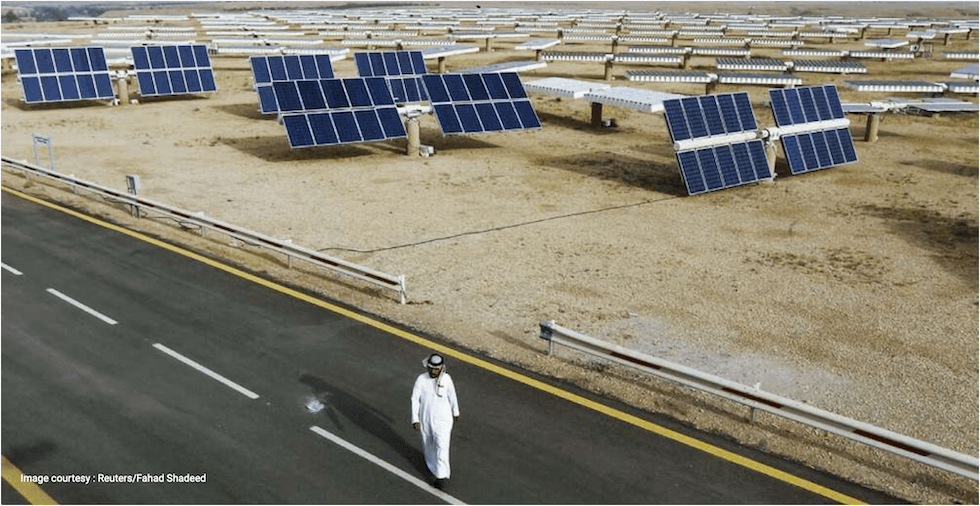
Tax Incentives for Specific Sectors
Tax incentives offered by the Saudi government aim to promote investment in certain areas or sectors aligned with Vision 2030 objectives.
Special Economic Zones (SEZ): Saudi Arabia offers tax incentives for companies investing in its Special Economic Zones, like NEOM and KAEC, where businesses benefit from reduced tax rates and customs duties exemptions to stimulate investment in high-tech and innovative industries. The government offers also financial and non-financial incentives for companies In the SEZ such as exemption from operational fees for employees and families, flexible regulations for foreign talent during first 5 years and competitive utility rates notably in terms of electricity.
Renewable Energy and Clean Technology (RECT): To promote sustainable energy solutions, the government offers incentives in the renewable energy sector, including solar and wind power projects. These incentives aim to reduce dependency on oil and develop alternative energy sources.
Technology and Innovation (TI): The technology sector, particularly in areas like artificial intelligence, biotechnology, and information technology, receives tax incentives. This is part of the broader strategy to position Saudi Arabia as a hub for technological innovation.
Tourism and Entertainment (TE): To boost tourism and create a vibrant entertainment industry, the government provides tax benefits to projects like the Red Sea Development Project and NEOM. These incentives are designed to attract international tourists and investments in hospitality and entertainment infrastructure.
Industrial and Manufacturing (IM): Special economic zones such as the King Abdullah Economic City offer tax incentives to manufacturing and industrial enterprises. These incentives include reduced corporate tax rates and customs duty exemptions to encourage the development of these sectors.
Mining and Minerals (MM): The government provides incentives in the mining sector, particularly for the exploration and development of mineral resources, as part of its strategy to exploit the Kingdom’s vast untapped mineral reserves.
Healthcare and Pharmaceuticals (HP): To enhance the healthcare infrastructure and pharmaceutical industry, tax incentives are offered for investments in medical technology, pharmaceutical production, and health services.
Financial Services (FS): The financial sector, particularly in areas like FinTech and Islamic finance, benefits from tax incentives aimed at bolstering Riyadh’s position as a financial hub.
Real Estate and Construction (REC): For projects that align with national development goals, such as affordable housing and infrastructure development, there are various tax incentives and subsidies.
These tax incentives are pivotal to Saudi Arabia’s strategy to foster economic diversification, reduce dependence on oil revenues, and attract foreign direct investment into these key sectors.

| Sector | Corporate Income Tax Rate | Withholding Tax | Customs Duties | VAT Exemption | Special Tax Treatment |
|---|---|---|---|---|---|
| RECT | 5% for up to 20 years | 0% on repatriation of profits from SEZs to foreign countries | Deferred customs duties or even 0% customs duty rate on capital equipment and inputs | Intra-SEZ goods exchange transactions within and between SEZs are exempt from VAT | Special tax treatment in line with OECD principles, to avoid double taxation |
| RECT | Rate on taxpayers in exploitation of natural gas sector is 20%, and rate on those producing oil and hydrocarbons is ranging from 50% - 85% depending on capital investment in Saudi | 15% | Exemption in customs duties | 15% | Not applicable – only in SEZ |
| TI | 20% | 15% | 15% | Not applicable – only in SEZ | |
| TE | 20% | 5% on Airline tickets/air or sea freight | Resolution No. 79 provides the Ministry of Tourism the ability to suggest tax and customs exemptions | 0% on international transportation of passengers | Not applicable – only in SEZ |
| IM | 20% | 15% | Granting customs duty exemptions for manufacturing and industrial projects | 15% | Not applicable – only in SEZ |
| MM | 20% | 15% | Granting customs duty exemptions for manufacturing and industrial projects (under ministry of industry and mineral resources) | 15% | Not applicable – only in SEZ |
| HP | 20% | 15% | 0% on certain medicines and medical equipment | Not applicable – only in SEZ | |
| FS | 20% | 15% | Certain financial services are exempted | Not applicable – only in SEZ | |
| REC | 20% | 15% | License of the residential real estate is exempted | Not applicable – only in SEZ |
International Tax Agreements
Saudi Arabia has entered into several Double Taxation Avoidance Agreements (DTAAs) with other countries, including China and the UK. These agreements prevent double taxation of the same income earned in one jurisdiction by a resident of another and can significantly impact international businesses operating in the Kingdom, thereby encouraging foreign investment.
Transfer Pricing Regulations
The transfer pricing regulations and guidelines, recently introduced by the General Authority of Zakat and Tax (GAZT) in 2019, require large businesses and multinational enterprises to comply with international norms of reporting and pricing between associated enterprises. These regulations align with OECD guidelines, requiring multinational corporations in Saudi Arabia to maintain detailed documentation of their intercompany transactions.

Zakat on Saudi Entities and Citizens
Zakat is a form of Islamic tax applicable to Saudi and GCC nationals and entities. It is a unique aspect of the Saudi tax system and is significant for businesses owned by Saudi or GCC nationals.
Zakat is calculated at 2.5% of the net assessable income of a company, which applies to Saudi and GCC nationals and entities. This is distinct from corporate income tax and is a key consideration for businesses. The taxable income, known as the company’s Zakat base, includes items like cash, receivables, and inventory. Saudi-based companies, such as Al Rajhi Bank, are subject to Zakat, affecting their financial planning and reporting.

Digital Transformation in Tax Administration
The digitalization efforts in tax administration, such as the implementation of electronic systems for tax filing and payment, aim to streamline and simplify the process for taxpayers.
The implementation of the e-invoicing system by the ZATCA in 2021 is a significant step towards digital transformation. This system mandates electronic generation and retention of invoices, streamlining tax compliance.

Navigating Business Risks
Political and Economic Stability
Saudi Arabia enjoys a degree of political stability under the rule of the Al Saud family, which contributes to a conducive environment for business operations. The economic reforms under Vision 2030 also play a crucial role in ensuring economic stability by diversifying the economy away from oil and fostering private sector development. Given its strategic location and significant role in global oil supply, geopolitical tensions and regional dynamics in the Middle East can pose risks to market stability in Saudi Arabia.

Oil Market Fluctuations
Saudi Arabia’s dominant position in the global oil market means that regional conflicts or tensions can lead to fluctuations in oil prices. For instance, geopolitical tensions involving Iran or incidents like the 2019 drone attacks on Saudi Aramco facilities can cause significant disruptions, affecting global oil prices and, conse- quently, the stability of the Saudi economy.

Supply Chain Disruptions
Geopolitical unrest in the region can lead to supply chain disruptions. For example, conflicts in neighboring countries or the closure of key maritime routes like the Strait of Hormuz can impact the movement of goods and energy resources, affecting businesses reliant on these supply chains

Foreign Investment Impact
Heightened geopolitical risks can lead to a cautious approach from foreign investors. Concerns about regional stability can impact investment decisions, potentially delaying or reducing foreign direct investment in the Kingdom.

Security Concerns
Geopolitical tensions can also escalate security risks. Businesses operating in Saudi Arabia may face increased security costs and need to implement more robust risk management strategies.
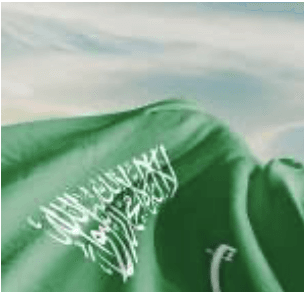
Trade & Diplomatic Relations
Saudi Arabia’s diplomatic relations with other countries in the region, influenced by geopolitical factors, can impact trade agreements and economic partnerships. For example, the Qatar diplomatic crisis in 2017 led to temporary trade disruptions and affected businesses with interests across the involved nations.
Legal Risks and Dispute Resolution
Legal risks in Saudi Arabia are managed through a well-structured judicial system. The country has been investing in judicial training and infrastructure to ensure the system’s effectiveness and efficiency. Dispute resolution mechanisms are available, and the Saudi Center for Commercial Arbitration (SCCA) provides a platform for resolving commercial disputes in a fair and timely manner.
Cybersecurity and Data Protection
The implementation of the PDPL in 2021 marked a significant step towards bolstering data protection and cybersecurity in the Kingdom. Supervised by the Saudi Data & Artificial Intelligence Authority (SDAIA), as mentioned, this law sets a foundation for protecting personal data and mitigating cybersecurity risks, which is imperative in the digital age.
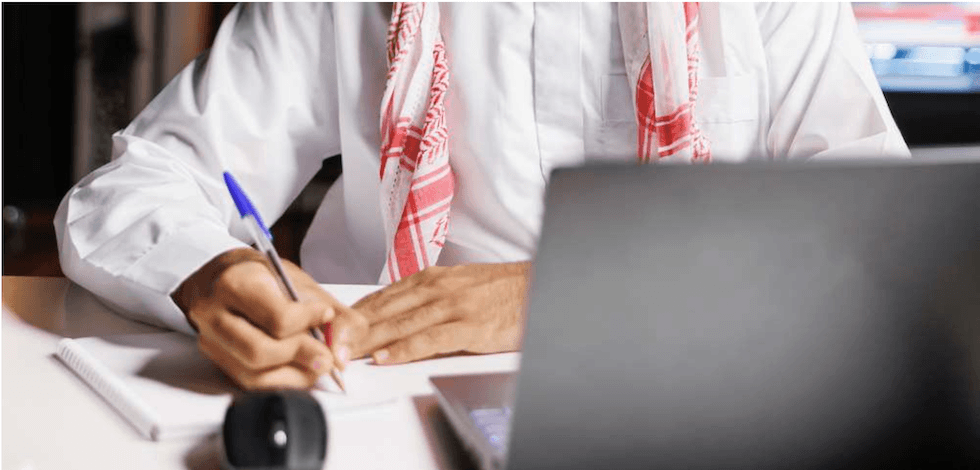
Saudi Arabia had also introduced regulations concerning data localization, which is part of a broader global trend where countries are implementing laws to govern the storage and processing of data within their borders. This is often done for reasons of data security, privacy, and national sovereignty.
In Saudi Arabia, this move aligns with the Kingdom’s Vision 2030 goals, which include not only economic diversification but also enhancing digital infrastructure and cybersecurity. The SDAIA is a key player in this space, tasked with overseeing the Kingdom’s data and AI strategy.
The PDPL, implemented in 2021, is an example of legislation that touches on data management and protection. While the PDPL primarily focuses on the rights of individuals regarding their personal data, it’s part of a broader suite of regulations that could include data localization requirements.
Businesses operating in Saudi Arabia or handling Saudi data need to be aware of these regulations and ensure compliance. This might involve investing in local data centers or cloud services that store data within Saudi Arabia.
Market Entry and Operational Risks
Challenges foreign businesses may face when entering the Saudi market include navigating local business customs, understanding the regulatory environment, and adapting to market dynamics. Some examples below serve to illustrate these risks.
-
Local Business Customs:
- Starbucks, like many global brands, had to adapt its business model to align with local cultural norms and customs. This included designing gender-segregated spaces in their cafes, especially before recent reforms.
- Fast-food chains like McDonald’s and KFC had to modify their menu offerings to comply with Halal dietary laws in Saudi Arabia. Additionally, they have had to design their dining areas to accommodate gender segregation norms too.
-
Regulatory Environment:
- Companies in the tech sector, such as Uber and Careem, faced challenges in aligning their business models with Saudi Arabia’s transportation regulations and labor laws. They had to navigate the regulatory landscape regarding the use of technology in public transportation and adapt to the Saudization policies that prioritize employment for Saudi nationals.
-
Adapting to Market Dynamics:
- Again, fast-food chains like McDonald’s adapted their menu to suit local tastes in Saudi Arabia. They included items like the McArabia, a sandwich with local flavors, demonstrating the need for foreign businesses to tailor their products to meet local consumer preferences.
- Retail giants like Amazon, which acquired the Middle East e-commerce company Souq.com, had to tailor its e-commerce platform to align with local consumer preferences and logistical challenges unique to the region. This included adjustments in product assortments to cater to local tastes and ensuring compliance with Saudi Arabia’s e-commerce regulations.
“There are four main challenges that French companies face when doing business in KSA: access to information (such as market data and prices), challenging registration process, Saudization requirements, and the different business culture heavily based on personal relationships which take time to build. To overcome these challenges, CAFS (Saudi French Business Council) is working on sharing information through a guide that will be published soon to provide companies with information and concrete advice. Additionally, CAFS is introducing French companies to its members who can provide proper services to facilitate market entry. CAFS also organises conferences and webinars to share information.”
Guillaume Rebiere, Administrative Manager / Chief of Staff Saudi French Business Council (CAFS)
Economic Diversification Risks
Economic diversification under Vision 2030, while crucial for Saudi Arabia’s long-term stability, poses risks of overdependence on alternative sectors, like real estate and tourism, potentially creating new vulnerabilities. Rapidly fostering a culture of innovation and entrepreneurship, especially in a traditionally oil-reliant economy, presents challenges in ensuring sustainable growth and avoiding a skill gap in the workforce. Additionally, significant investment in new sectors like technology and renewable energy demands careful management to avoid misallocation of resources and ensure these sectors’ competitiveness on a global scale.
Environmental and Sustainability Risks
Saudi Arabia’s oil-centric economy faces environmental and sustainability risks amid global climate change concerns. The nation is adapting by investing in renewable energy projects like the ambitious NEOM city, which aims to run entirely on renewable energy. However, balancing the transition from fossil fuels to greener alternatives while maintaining economic growth poses a significant challenge. Businesses in the Kingdom are increasingly integrating sustainability practices, aligning with global trends, but must navigate the complexities of this transition in an economy long dependent on oil revenues.
Establishing Presence in Saudi Arabia
Entry Strategies
Entering the Saudi Arabian market demands a nuanced and well-informed strategy, considering its distinct legal, cultural, and economic landscape. European businesses have various options for entering this lucrative market, each with its unique advantages and challenges. Here are key entry strategies, with real-world success stories.
Export to Saudi
- Strategy: Businesses can export their products to Saudi Arabia without a physical presence by working with local distributors or agents. This approach minimizes the initial investment and risk but relies heavily on the local partner’s market knowledge and network.
- Example: A European pharmaceutical company successfully entered the Saudi market by partnering with a well- established Saudi distribution company, leveraging their local expertise and network to navigate complex regulatory and market conditions.

“Finding a local partner would be a privilege if they are providing you with a strategic value [and] a strategic leverage that gives you your first step into the Saudi market.”
Julien Pescheux, Former EVP of Saudi Airlines Catering Company (SACC)
Joint Ventures (JVs) and Partnerships
Saudi Arabia encourages foreign investments but often requires partnering with a local entity. This is particularly notable in the case of non-Saudi companies, which are typically required by law to have a Saudi partner when looking to do business in the country. Such partnerships can help navigate the regulatory landscape and understand the local market dynamics better.
- Strategy: Forming a joint venture or partnership with a Saudi company can provide valuable local insights and facilitate easier market entry. This approach is particularly effective in sectors where foreign ownership is limited.
- Example: Siemens, the German industrial giant, formed a joint venture with a Saudi partner to expand its footprint in the energy sector. This partnership facilitated Siemens’ understanding of the local market and regulatory compliance, contributing to its success in the Kingdom.
Mergers and Acquisitions (M&A)
M&As are another pathway for entry. This strategy involves acquiring or merging with a local company to establish a presence in Saudi Arabia. This strategy provides a quick entry but requires a thorough understanding of the local market and regulatory compliance.
- Strategy: Entering the market through M&A involves acquiring or merging with an existing Saudi business. This strategy can offer immediate market access and local expertise but requires thorough due diligence.
- Example: European companies in sectors like retail and hospitality have successfully entered the Saudi market through M&A, although each case requires careful analysis of market dynamics and regulatory conditions.
Greenfield Investments
Greenfield investments entail starting operations from scratch in Saudi Arabia. This strategy offers the most control over operations but also involves significant time, effort, and understanding of the local market. For instance, Saudi Aramco’s ‘’In-Kingdom Total Value Added’’ (IKTVA) program encourages foreign companies to invest in a local supplier base, aiming to retain a significant percentage of locally manufactured energy-related goods and services.
- Strategy: Establishing a new, fully owned operation in Saudi Arabia offers complete control but involves significant investment and understanding of the local market.
- Example: IKEA, the Swedish furniture retailer, made a greenfield investment by opening its stores in Saudi Arabia. This direct investment allowed IKEA to maintain control over its brand and operations, adapting its business model to meet local preferences and regulations.
Understanding the Business Environment
Visiting Saudi Arabia to gain firsthand experience and potentially partnering with a local company for better navigation of the market is crucial. Engaging with local business consultants or legal advisors is also beneficial for a deeper understanding of market entry dynamics.
Each entry strategy has its nuances, and the choice largely depends on the sector, company size, risk appetite, and long-term goals. The success of European businesses in Saudi Arabia underlines the importance of a strategic approach tailored to the unique aspects of the Saudi market.
Understanding Entry Strategies
While the outlined strategies provide a general approach, the specifics can greatly vary depending on the sector and the company’s individual circumstances.
| Entry Strategy | Level of Investment Required | Degree of Control | Market Knowledge Dependency | Speed of Market Entry |
|---|---|---|---|---|
| Export to Saudi | Low | Low | High | Fast |
| JVs/Partnerships | Medium to high | Medium | Medium | Medium |
| M&A’s | High | High | Low to medium | Fast |
| Greenfield Investments | Very high | Very high | Low | Slow |

Import to Saudi:
- Investment: Low, as it doesn’t require physical presence or establishment of operations in Saudi Arabia.
- Control: Low, as it relies on local partners for distribution and market penetration.
- Market Knowledge Dependency: High, as success heavily depends on the local partner’s understanding of the market.
- Speed of Entry: Fast since it doesn’t involve setting up operations or navigating complex establishment processes.

Joint Ventures/Partnerships:
- Investment: Varies from medium to high depending on the nature and scale of the joint venture or partnership.
- Control: Medium, shared with a local partner.
- Market Knowledge Dependency: Medium, as the local partner provides market insights, but the foreign company also brings its expertise.
- Speed of Entry: Medium, as it involves negotiation and establishment of partnerships but is faster than setting up a new operation.

Mergers & Acquisitions:
- Investment: High, as it involves purchasing or merging with an existing company.
- Control: High, especially in the case of an acquisition.
- Market Knowledge Dependency: Low to medium; acquiring a local company provides immediate market insight.
- Speed of Entry: Fast, as the structure is already in place.

Greenfield Investments:
- Investment: Very high, as it involves building operations from the ground up.
- Control: Very high, as the company has full governance over its operations.
- Market Knowledge Dependency: Low, as the company brings its own practices and standards, though local market understanding is essential.
- Speed of Entry: Slow, due to the time required to establish a new operation.
Hoffmann-La Roche (Switzerland): Export and joint venture

Roche (Swiss company), a leading biotech company, is one of the main providers of in-vitro diagnostics and an international supplier of pioneering solutions for major health challenges. It is committed to growing the practice of medicine through the development of innovative medicines and diagnostics while ensuring a positive impact on patients’ lives.
Prior to establishing its legal entity in KSA in 2016, Roche used the exporting strategy to penetrate the Saudi market back in the 1980’s. Al Naghi Company, Saudi Import Company – BANAJA and ARAC Healthcare (subsidiary of SPIMACO), up until 2016, were the official local agents distributing around 25 drugs from Roche in the kingdom. These partnerships gave Roche the access to the Saudi market without the challenges of dealing with complex regulatory and market conditions.
The export strategy has proven successful and led in April 2018, to the signature of a memorandum of understanding (MoU) between Roche and Saudi Pharmaceutical Industries & Medical Appliances Corporation (SPIMACO) for localized production of three oncology products in the first phase with an annual sale of SAR 100 million (US$27 million). Through this contract, SPIMACO will be taking on partial production, sales, and distribution of Herceptin and Mabthera (with respective scientific names Rituximab and Trastuzumab), two leading breast cancer drugs, in Saudi Arabia. This agreement is beneficial to both parties. Roche from one side is introducing its advanced medicines to the Saudi market hence increasing its sales and revenues especially that Trastuzumab is the leading oncology drug by value in the GCC (including KSA) with a CAGR of more than 20% for the period 2016-2020. Roche is also improving its visibility without the need to deep dive in local market understanding. The local partner (SPIMACO) on the other side, possesses the market insights and expertise allowing an efficient distribution of the products while benefitting from technical knowledge transfer.
In September 2018, Roche received its license to operate in KSA from the General Investment Authority (SAGIA) for its diagnostics division as a joint venture with local distributor Farouk, Maamoun Tamer & Co. This JV provides Roche with “immediate access to patients and decision- makers” with positive impact on recruitment with the ability to attract new talent through the local presence in addition to the possibility to “make better investment decisions in terms of diagnostics products” as specified by Ali Al Watban General Manager, Roche Diagnostics Saudi Arabia.
Those agreements align perfectly with the Roche’s vision to improve public health and ensure national drug security. By venturing into new areas, expanding its reach, and diversifying its offerings, the company aims to deliver the highest quality healthcare to the Saudi market. This partnership guarantees a stable supply of essential medication that meets all international standards, ultimately ensuring patients’ access to life-saving treatments.
IKEA (Sweden): Greenfield Investment
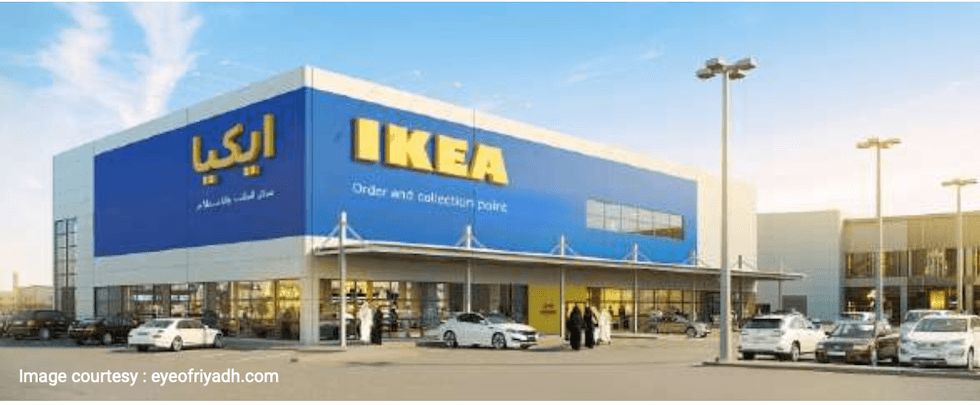
IKEA is Swedish home furnishing company spread all over the world. Their business idea is to “offer a wide range of well-designed, functional home furnishing products at prices so low, that as many people as possible will be able to afford them”. IKEA’s history in the kingdom goes back to 1983 when its first store was opened in Jeddah where it opted for a greenfield investment. In 1990, another store was opened in Riyadh with an area of 6,000 sqm. Those stores where closed and relocated in 2004 with the opening of 2 IKEA concept stores covering the area of 28,000 sqm each, staffed with 290 employees. The third store was open in 2008 in Dhahran city.
Establishing the stores in KSA through greenfield investment allowed IKEA to have full control over its local operations. However, while IKEA was trying to adapt its marketing strategies to attract the local market, it was faced with a large cultural criticism from Sweden: in 2012, it came under fire for its Saudi Arabia catalogue, which did not include any images of women, sparking concerns about cultural adaptation and gender equality. This controversy raised a major discussion that should be given a high level of consideration while expanding through greenfield investments about how companies should manage their corporate culture and balance their core values with local cultural differences during international expansion.
Case Study 3AccorHotels: Mergers and acquisitions (M&A)
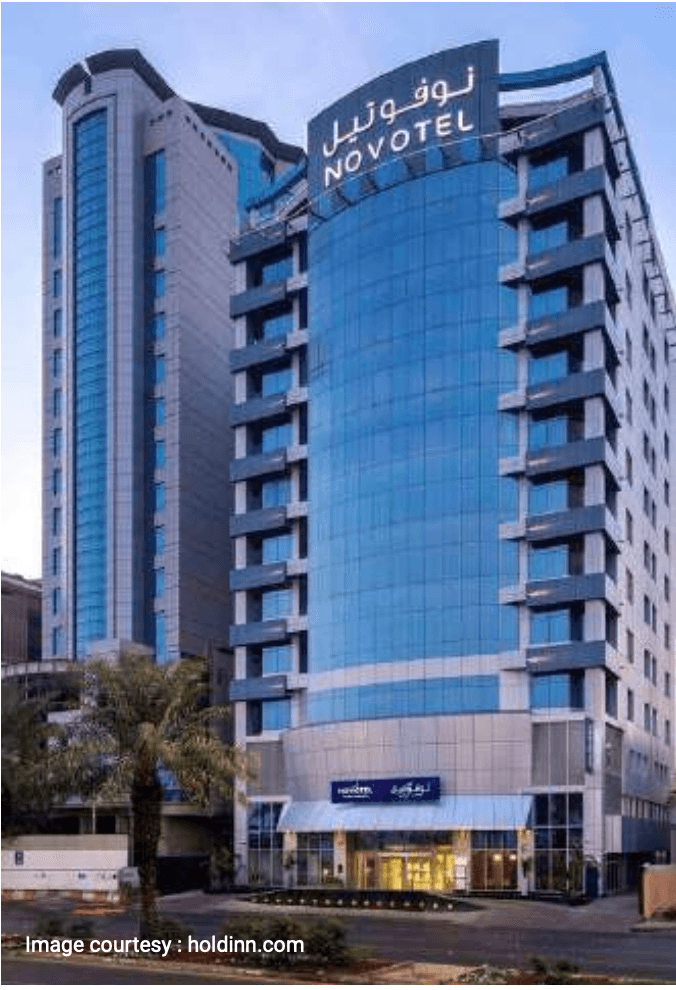
AccorHotels is a French leading global hospitality group opened the first Sofitel in Saudi Arabia in 2010: the Sofitel Al Khobar the Corniche. To achieve its “ambitious expansion plans” in the kingdom, the group used the M&A strategy. In late 2015, Saudi Arabia’s Kingdom Holding Company (KHC), led by Prince Alwaleed bin Talal, finalized its $3.2 billion deal with AccorHotels, merging its Fairmont Raffles platform with the French hospitality giant. This move involved the acquisition of FRHI, owner of Fairmont, Raffles, and Swissotel brands.
The deal grants KHC a 5.8% stake in AccorHotels. The prince declared that KHC “extends its full support to Accor’s management as they position the company for further growth, innovation, and value realization”. This type of support is paving the way towards further expansion of the hotel chain in KSA and is indeed allowing Accor group and FRHI to become frontrunners in the rapidly evolving hospitality industry in the kingdom.
Together, they are better equipped to tackle industry shifts like consolidation, tech disruption, and changing customer preferences. As of 2023, AccorHotels possesses a portfolio of 42 hotels in KSA with plans to double its presence by 2027 with more than 90 hotels in total in KSA.
Operational Considerations
Successful operations in Saudi Arabia necessitate a clear understanding of the unique market dynamics and operational challenges in the Kingdom. Here are the operational considerations along with real-world examples.

Supply Chain and Logistics
As Saudi Arabia embarks on large-scale infrastructure projects, the demand for key raw materials is anticipated to rise, possibly leading to higher costs for businesses. Additionally, new roads, bridges, airports, and other infrastructural advancements may change the transportation dynamics in the Kingdom. Companies may need to adjust their delivery routes and rethink their supply chains to leverage these new opportunities.
- Infrastructure Development Impact: The Kingdom’s massive infrastructure projects, part of Vision 2030, are transforming logistics and supply chain dynamics. The development of new transport corridors, such as the planned land bridge connecting the Red Sea with the Arabian Gulf, is set to revolutionize the movement of goods, reducing transit times and potentially lowering costs.
- Adjustment to Infrastructure Changes: Businesses must stay agile, adapting their supply chains to leverage these infrastructural advancements. For instance, logistics companies might need to reevaluate their distribution strategies to optimize new routes and transportation methods.
Logistics Corridors
The development of transport and logistics corridors in Saudi Arabia is a crucial part of the Kingdom’s broader economic diversification and infrastructure enhancement strategy under Vision 2030. These corridors are designed to improve connectivity, streamline trade, and boost economic growth. Here are key details about some of the major corridor projects:

Saudi Land Bridge Project:
- Overview: This ambitious project aims to connect the Red Sea with the Arabian Gulf via a rail network. Stretching across approximately 1,000 kilometers, the land bridge will link the port city of Jeddah on the Red Sea to Riyadh and then to the Eastern Province.
- Impact: The corridor will significantly reduce cargo transit times across the Kingdom and facilitate faster and more efficient transportation of goods. It’s expected to be a game-changer for freight movement between Europe, Asia, and Africa.

North-South Railway:
- Overview: This railway, already partially operational, runs from Riyadh to the northern border with Jordan. It primarily serves the mining industry, transporting minerals to processing and export facilities on the Gulf.
- Impact: The railway enhances the efficiency of mineral transportation and is a key component in developing the mining sector, a significant pillar of Saudi Arabia’s economic diversification strategy.

King Abdullah Port Expansion:
- Overview: Located on the Red Sea coast, the King Abdullah Port is undergoing an expansion to become one of the world’s largest ports. This port is integral to the Kingdom’s logistics and trade ambitions.
- Impact: The expansion will increase the port’s capacity and efficiency, making it a major logistics hub in the Red Sea region and enhancing the Kingdom’s global trade connectivity.

NEOM and Economic Cities:
- Overview: As part of Vision 2030, NEOM and other economic cities like KAEC are being developed with state-of-the-art infrastructure, including logistics and transportation hubs.
- Impact: These developments aim to create economic zones with seamless logistics capabilities, attracting global businesses and investments.
These corridor projects demonstrate Saudi Arabia’s commitment to leveraging its strategic geographic location to become a global logistics and trade hub. They not only aim to diversify the economy away from oil dependence but also to create new opportunities for businesses operating within and through the Kingdom.
Talent Acquisition and Management
The influx of major infrastructure projects in Saudi Arabia is driving a higher demand for skilled labor across various industries such as engineering, construction, project management, and finance. Companies may find themselves competing for talent, potentially pushing up wages. Moreover, Saudization, a national policy aimed at encouraging the employment of Saudi nationals, impacts hiring practices in the private sector, necessitating a strategic approach to talent acquisition and management.
- Competing for Skilled Labor: The surge in infrastructure and development projects is heightening the demand for skilled professionals in engineering, construction, and project management. Companies may face increased competition for talent, impacting wage levels and recruitment strategies.
- Saudization Policy: The Saudization initiative mandates the employment of Saudi nationals in various sectors. Companies must strategize to comply with these regulations while maintaining operational efficiency.
Saudization Requirements across Sectors and Sizes
| Business Size/Sector | Small (<50 employees) | Medium (50-500 employees) | Large (> 500 employees) |
|---|---|---|---|
| Construction | 10% | 15% | 30% |
| Retail | 20% | 30% | 35% |
| IT and Telecommunications | 15% | 25% | 40% |
| Manufacturing | 10% | 20% | 25% |
| Hospitality | 20% | 30% | 40% |
| Healthcare | 30% | 40% | 50% |
| Financial Services | 25% | 35% | 40% |
| Education | 30% | 40% | 50% |
Key Points to Consider:
- Variability: The above percentages are indicative and can vary based on specific sub-sectors and changing government policies.
- Compliance Incentives: Companies exceeding these Saudization targets may receive incentives or benefits, such as expedited governmental services.
- Penalties for Non-Compliance: Failing to meet these targets can lead to restrictions on business operations, including limitations on work visas for foreign employees.
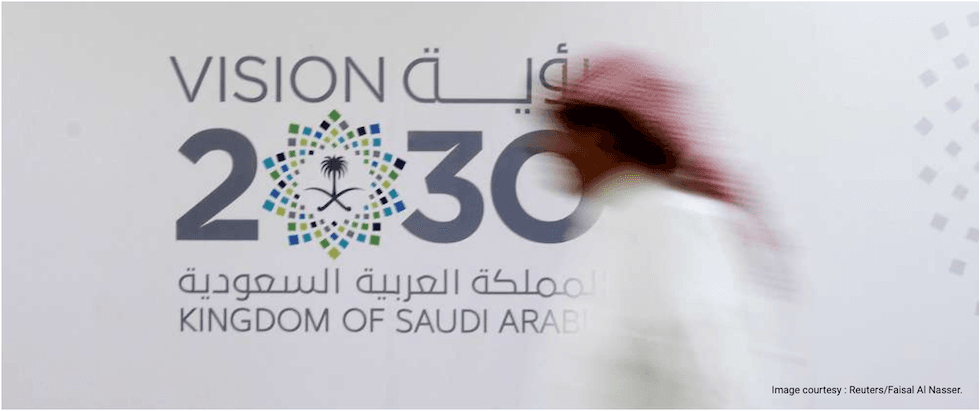
Localization and Cultural Adaptation
Localization refers to the adaptation of products or content to fit the Saudi market, adjusting functionality to accommodate linguistic, cultural, political, and legal differences. The ‘Made in Saudi’ program aligns with Saudi Aramco’s localization strategy, supporting Saudi Vision 2030 and local manufacturers by creating brand recognition and a preference for local products. Understanding and adapting to the unique business culture in Saudi Arabia is central to successfully doing business in the Kingdom. Cultural adaptation ensures that products do not challenge the cultural norms, trends, and legal regulations of Saudi Arabia.
- Product and Service Localization: Adapting products and services to meet the local linguistic, cultural, and regulatory needs is essential. This includes ensuring compliance with Islamic principles and local customs.
- ‘Made in Saudi’ Program: Aligning with programs like ‘Made in Saudi’ can aid businesses in gaining market acceptance. This program promotes local manufacturing and aligns with the Kingdom’s broader economic objectives.
“Regarding Vision 2030, companies need to adapt and consider the milestone of 2030 which is approaching fast: many Giga projects should be finalized by 2030. Strategies should be focused on this point if French companies want to benefit from the projects and opportunities. The companies opening local offices will be the market leaders especially that localization is the main point of Vision 2030: French companies should include knowledge, technology, and skills transfers in their strategy. Companies that are showing their long-term commitment through RHQ and training and skills transfer are going to benefit from all the help from the government.”
Guillaume Rebiere, Administrative Manager / Chief of Staff Saudi French Business Council (CAFS)

Operational Energy Costs
-
Energy Pricing Policies: Businesses need to consider Saudi Arabia’s energy pricing policies, which, while historically subsidized, are evolving as part of economic reforms.
-
Electricity Tariff Reforms:
- Overview: Saudi Arabia has implemented reforms in electricity tariffs as part of its economic diversification and efficiency drive. These reforms are aimed at reducing excessive consumption and encouraging energy conservation.
- For Businesses: The revised tariff structure includes different rates based on consumption levels. For instance, large industrial users may face higher tariffs during peak hours to promote energy efficiency and reduce strain on the grid.
-
Fuel Subsidy Reduction:
- Overview: The government has been gradually reducing fuel subsidies to align domestic fuel prices more closely with international market rates. This move is part of efforts to reduce budget deficits and encourage more efficient energy use.
- For Businesses: The reduction in fuel subsidies means an increase in operational costs for businesses reliant on fuel, particularly in transportation, logistics, and manufacturing sectors. However, this policy also aims to stimulate investment in energy-efficient technologies and alternative energy sources.
- Renewable Energy Initiatives: There is a growing focus on renewable energy in the Kingdom. Companies can consider integrating renewable energy sources into their operations to mitigate long-term energy costs and align with sustainability trends.
- Energy Efficiency Measures: Implementing energy efficiency measures can be a strategic move for businesses to control operational costs and contribute to the Kingdom’s sustainability goals.
-
Electricity Tariff Reforms:

Building Relationships
Building and nurturing strong relationships are vital for business success in Saudi Arabia. The Kingdom’s business culture deeply values personal connections, trust, and face-to-face interactions. This section elaborates on practical aspects of networking and relationship-building in the Saudi business context, including key venues and events for business networking.
Networking and Relationship Building
- Trust and Reputation: In Saudi Arabia, trust is the bedrock of business relationships. Cultivating trust requires time and understanding of local customs. Personal referrals and introductions can be crucial in establishing initial trust.
- Face-to-Face Interactions: Direct meetings are essential. Regular visits and in-person discussions are highly valued and often seen as crucial for long-term business relationships.
- Local Staffing: Employing local staff or consultants can bridge cultural gaps and provide invaluable insights into the local business etiquette, aiding in effective communication and relationship building.
- Cultural Adaptation: Understanding and adapting to local customs, such as dress codes, greeting styles, and business meeting protocols, is imperative for successful networking.
“Advice to CEOs of European companies entering the KSA market for the first time: the beginning of the journey will be met with a lot of enthusiasm and promises [however] very few of these options, propositions, opportunities will materialise. So, the notion of endurance and establishing realistic expectations is incredibly important. You also need to surround yourself in the local culture [...] very early on [knowing that] too few CEOs do that. It’s a wonderful society [and] incredibly welcoming. You cannot understand your customer and your guests [...] if you don’t actually spend time in somebody’s house.”
Julien Pescheux, Former EVP of Saudi Airlines Catering Company (SACC)
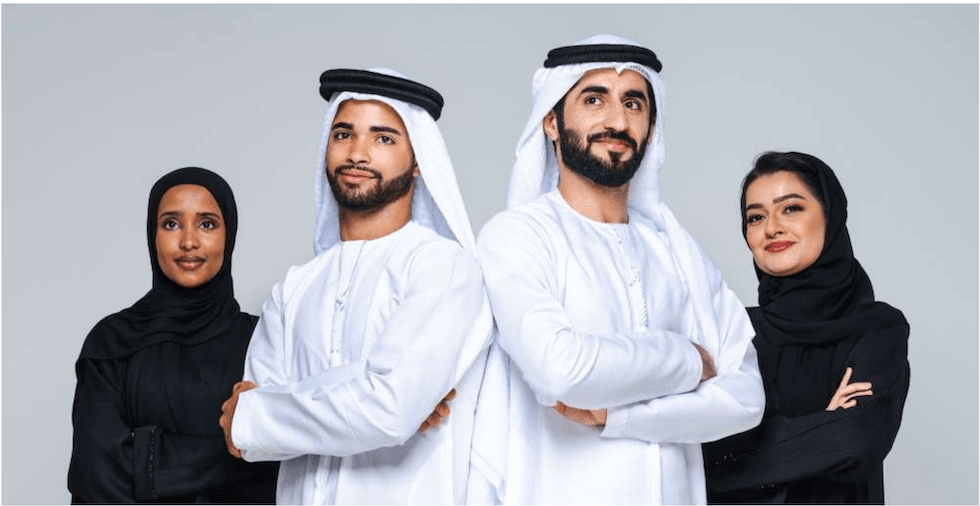
Key Venues and Events for Business Networking
Business Forums and Conferences
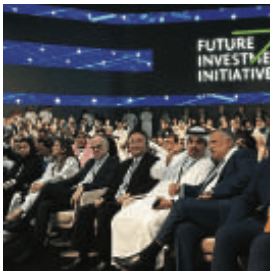
Held annually in Riyadh, this forum attracts global leaders, investors, and innovators
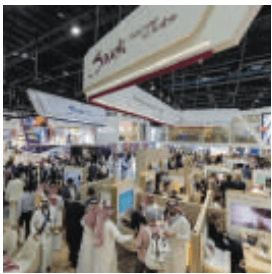
A platform for businesses to showcase their products and services and network with local and international stakeholders
Industry-Specific Exhibitions
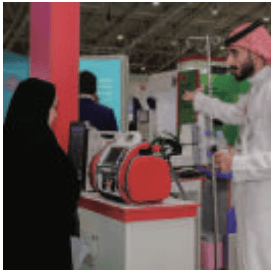
Ideal for healthcare and pharmaceutical companies.

A key event for businesses in the oil and gas sector.
Saudi Chambers of Commerce
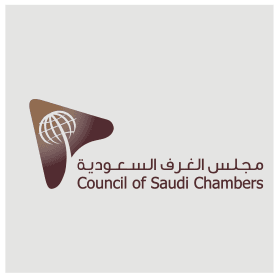
Held annually in Riyadh, this forum attracts global leaders, investors, and innovators

Relevant for businesses in the engineering sector, providing networking opportunities with professionals and industry leaders
Business Squares and Hubs

A major financial hub in Riyadh, hosting various business events

A center for commerce and events in the Western region

Gender Considerations in Networking
While the business environment is becoming more inclusive, cultural norms still pose unique challenges for businesswomen. Female professionals often strategize their networking approaches, such as participating in women- focused business groups or international business councils that offer more gender-balanced networking environments.
- Evolving Dynamics: The business landscape in Saudi Arabia is progressively becoming more inclusive for women. Recent reforms and initiatives under Vision 2030 have fostered a more open and supportive environment for female professionals. While traditional norms still influence business interactions, the situation for businesswomen is steadily improving, with increasing opportunities for engagement and leadership.
- Networking Strategies: Female entrepreneurs and professionals are finding more avenues for networking. Participation in women-focused business groups and forums is on the rise. Additionally, international business councils and mixed-gender events are becoming more commonplace, offering balanced networking environments.
- Empowerment Initiatives: Saudi Arabia has launched several initiatives aimed at empowering women in the workforce. These initiatives, coupled with a growing acceptance of women in diverse business roles, are helping to reduce the ‘awkwardness’ once associated with gender dynamics in professional settings.
The changing gender dynamics in Saudi Arabia’s business world reflect a significant shift towards inclusivity and empowerment. As these trends continue to evolve, they are paving the way for more equitable and diverse professional interactions, enhancing the overall business environment in the Kingdom.

Conclusion
In conclusion, ‘The CEO Guide to KSA’ offers a comprehensive and insightful journey through the business landscape of Saudi Arabia. It arms leaders with the knowledge and strategies necessary to thrive in this vibrant market. As the Kingdom continues to evolve and open new avenues for growth, understanding its unique economic, cultural, and regulatory environments is crucial. This guide is more than just a resource; it’s a roadmap for success, fostering meaningful connections and opportunities in one of the world’s most promising economies.
The Authors
 Damien Duhamel
Damien Duhamel
Managing Partner, Eurogroup Consulting Middle East
 Nabil Ramadan
Nabil Ramadan
Director, Eurogroup Consulting Middle East
 Elena Hoayek
Elena Hoayek
Consultant, Eurogroup Consulting Middle East
 Noura Stouhi
Noura Stouhi
Consultant, Eurogroup Consulting Middle East

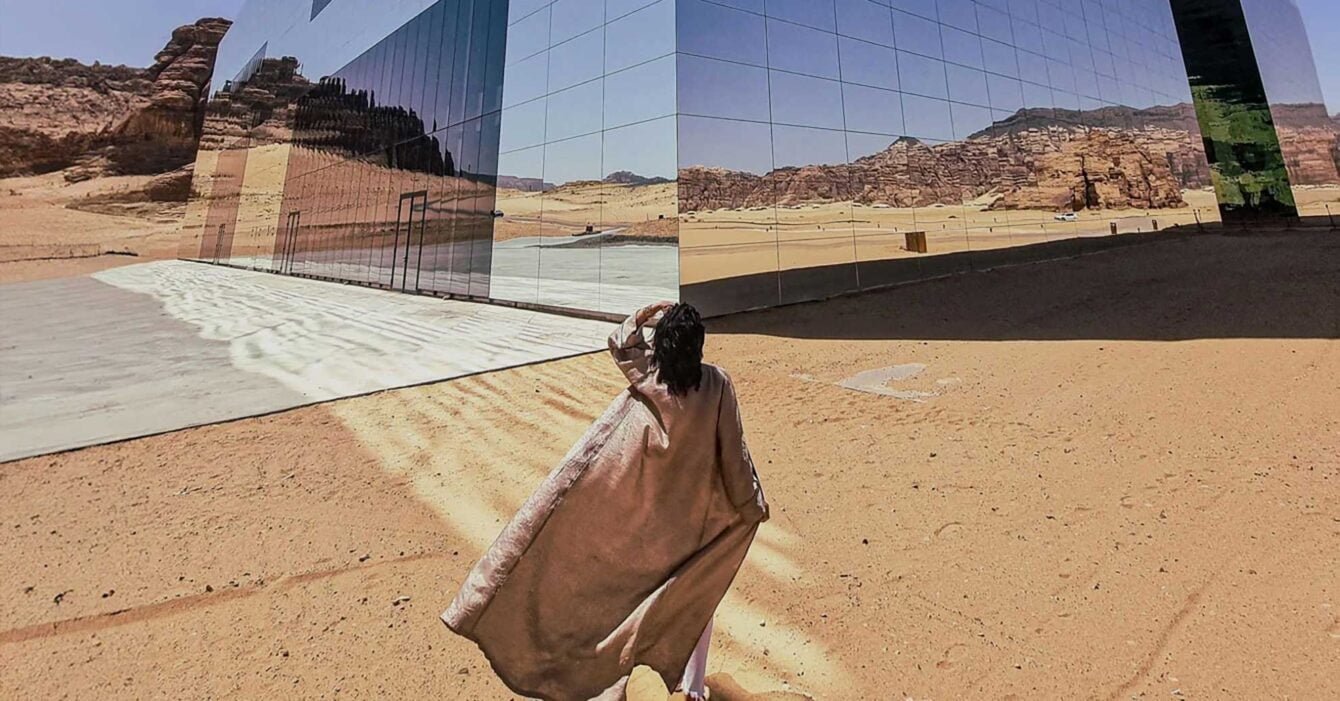

Social Norms and Practices: A Blend of Tradition and Modernity
Saudi Arabia’s social fabric is characterized by a deep-rooted emphasis on hospitality and family. Extended family and tribal affiliations play a critical role in societal structures. While traditional gender roles and segregation have been prevalent, recent reforms are gradually reshaping these practices, reflecting a society in transition. Adherence to a modest dress code, with women traditionally wearing abayas and men in thobes, remains a cultural hallmark.